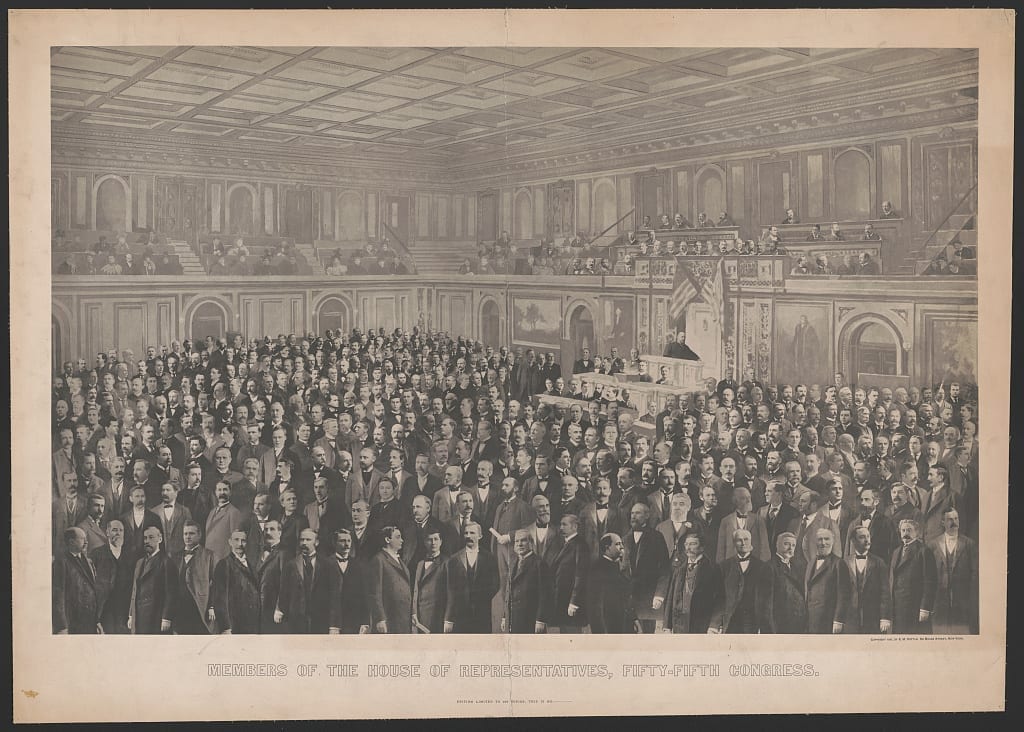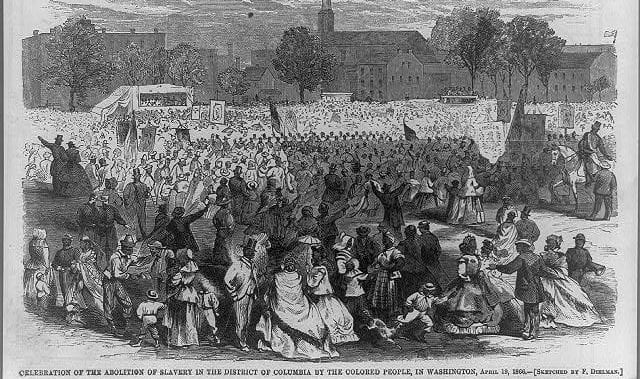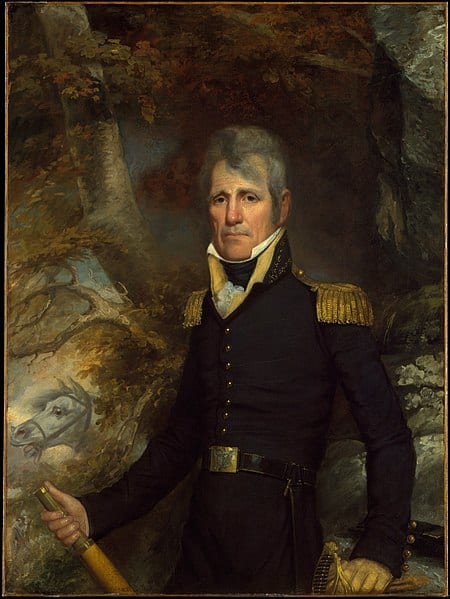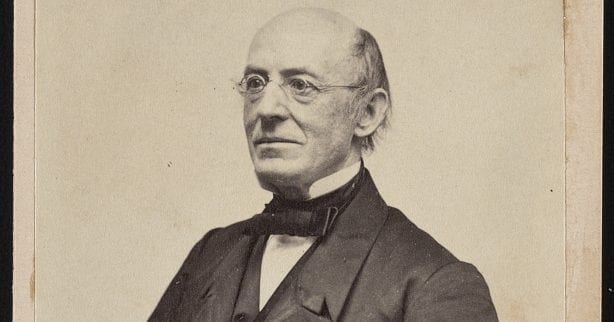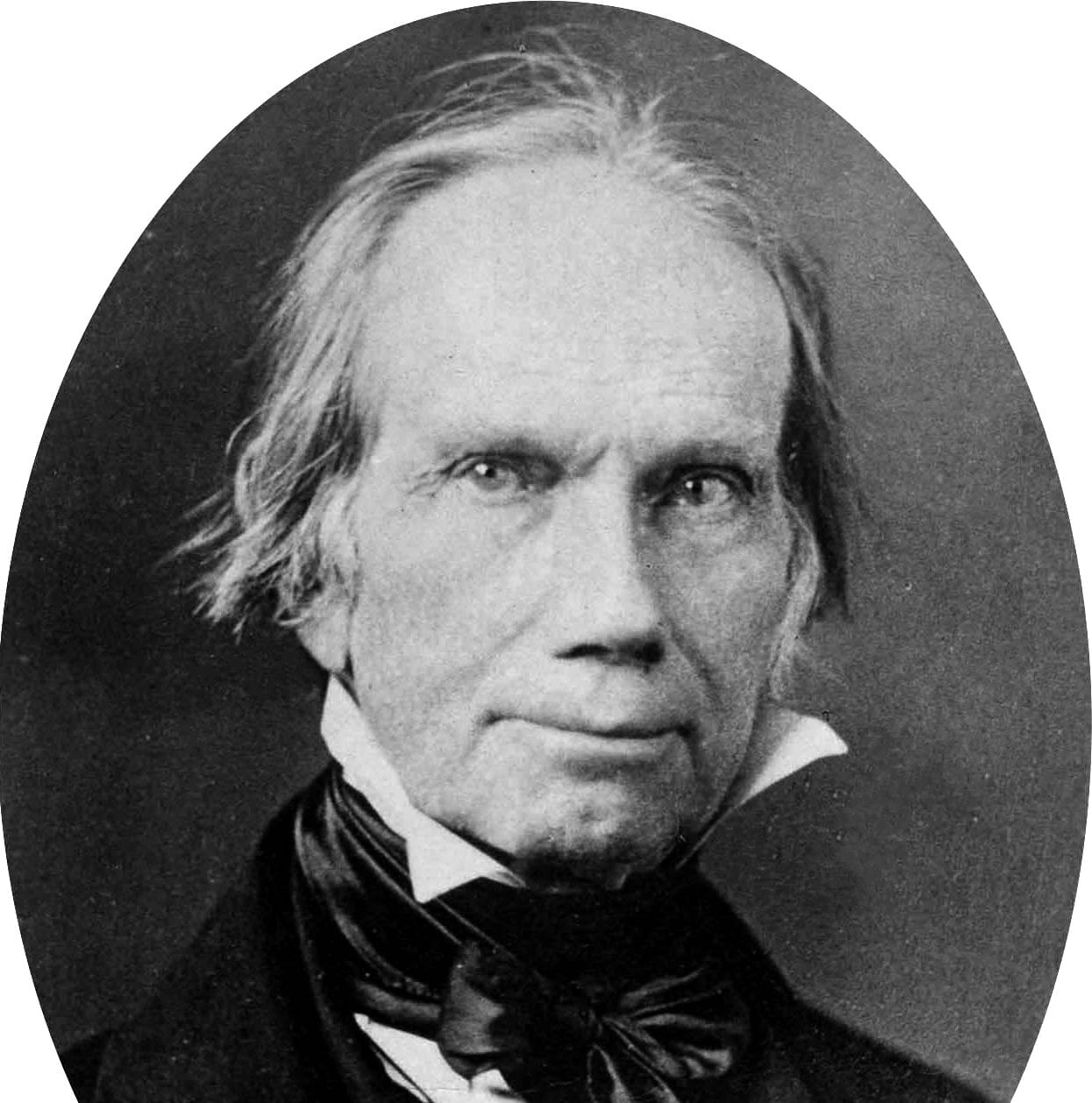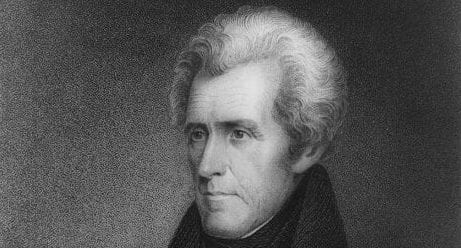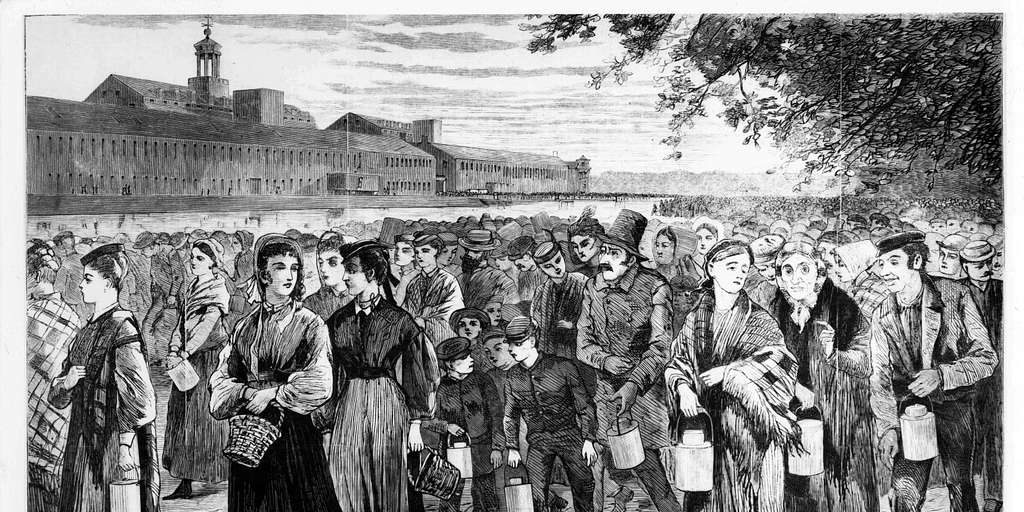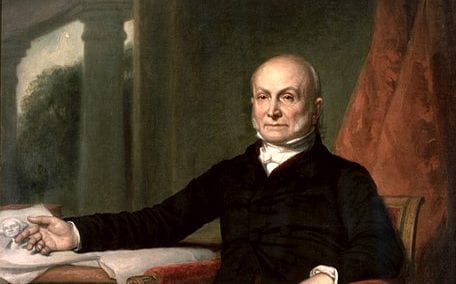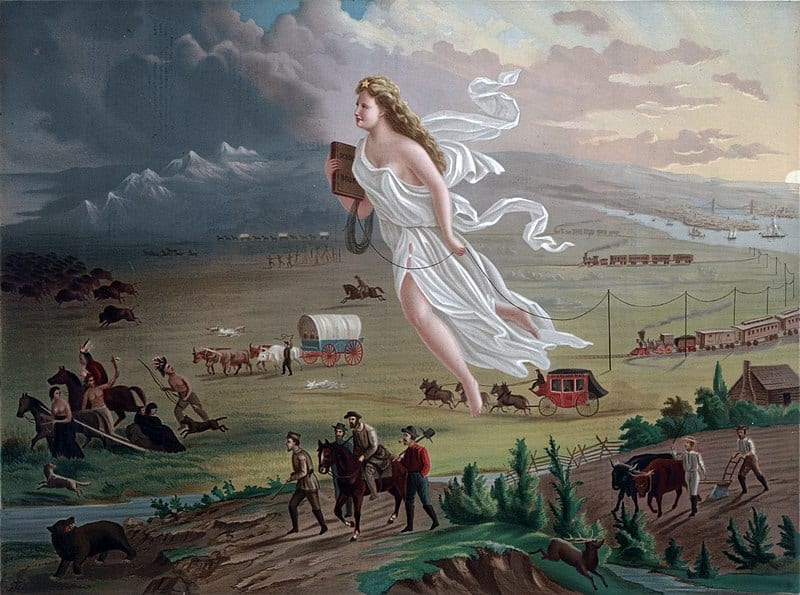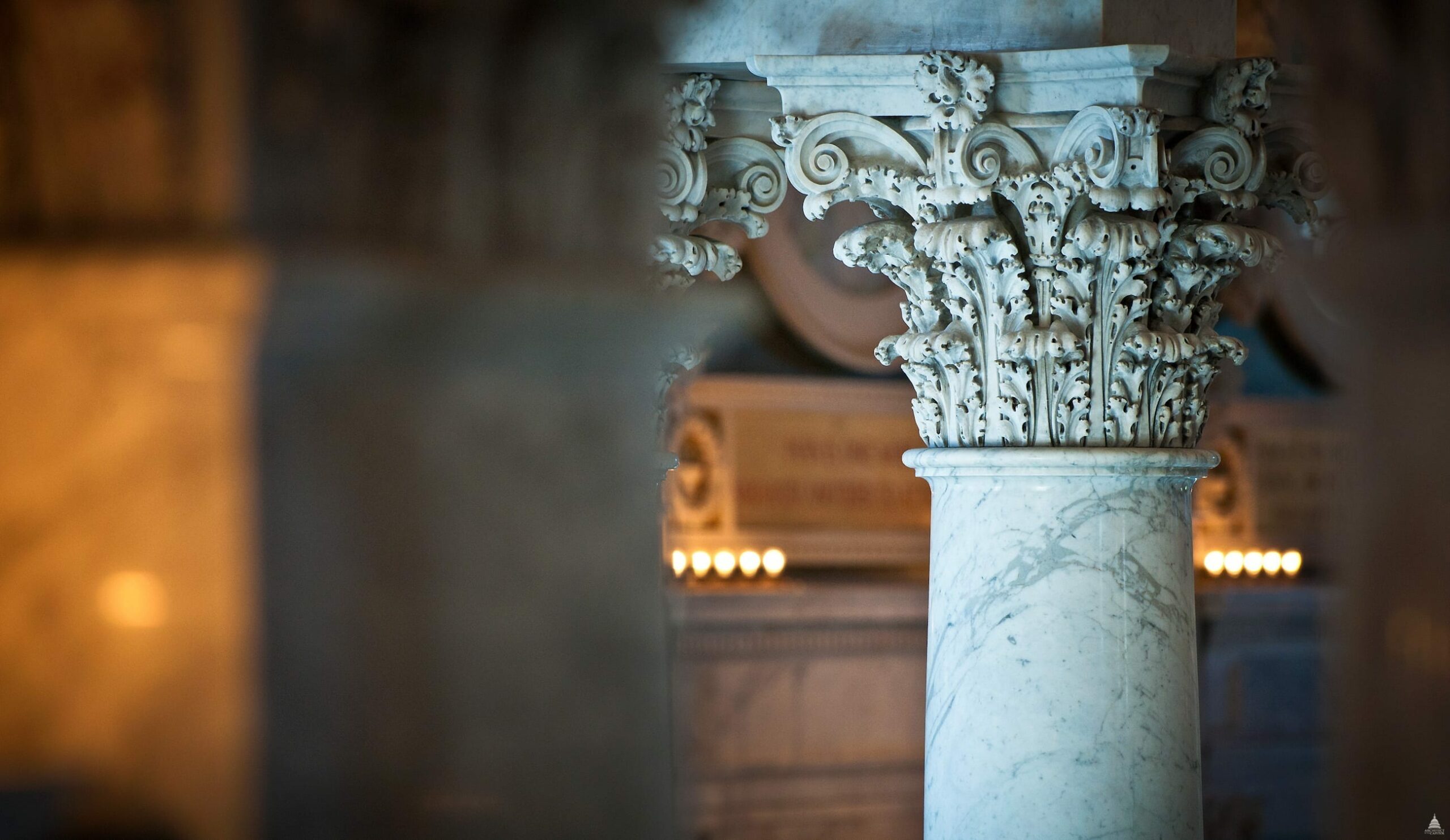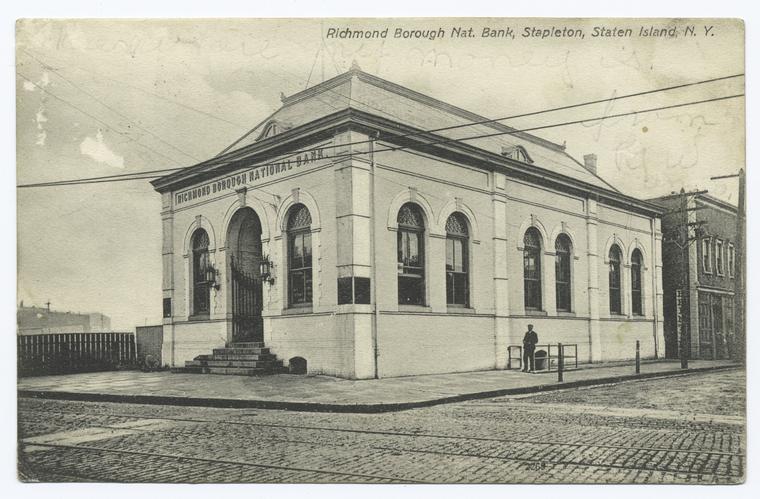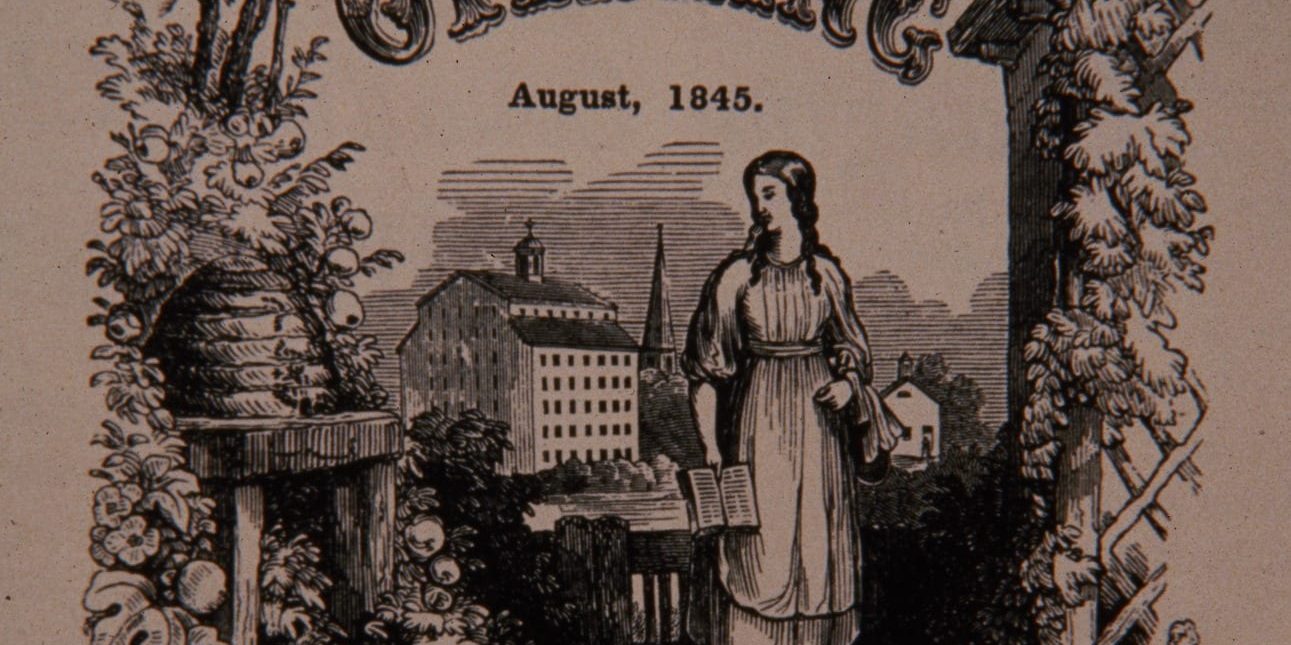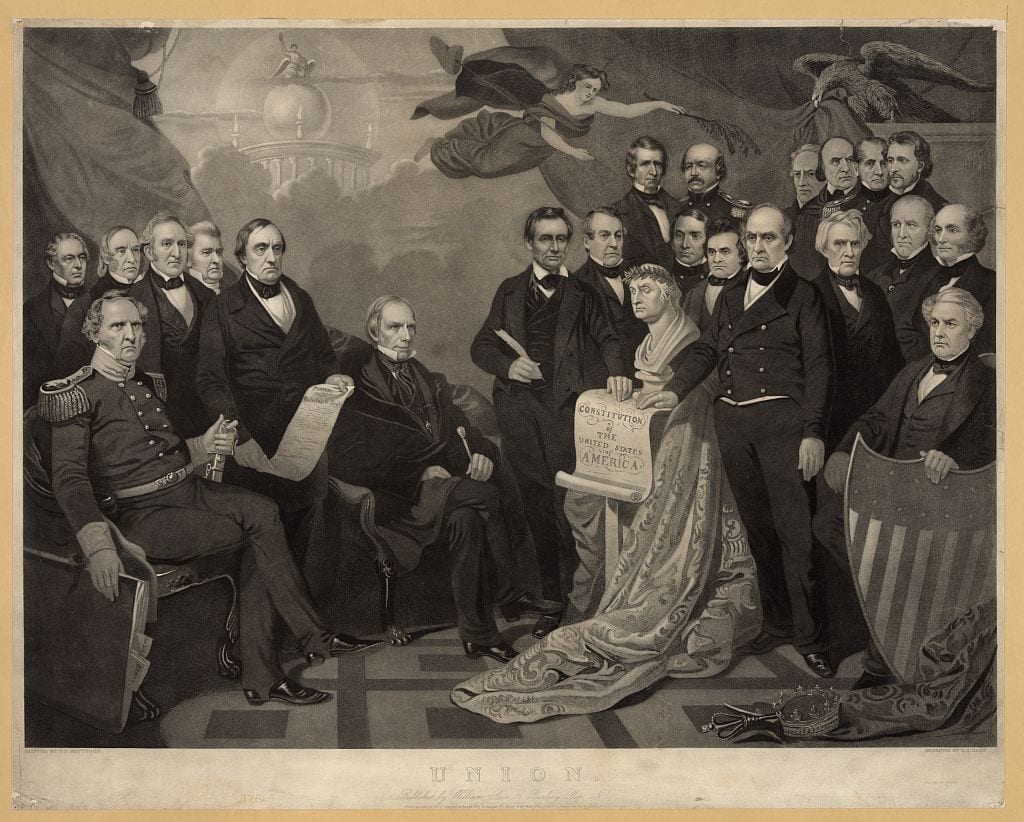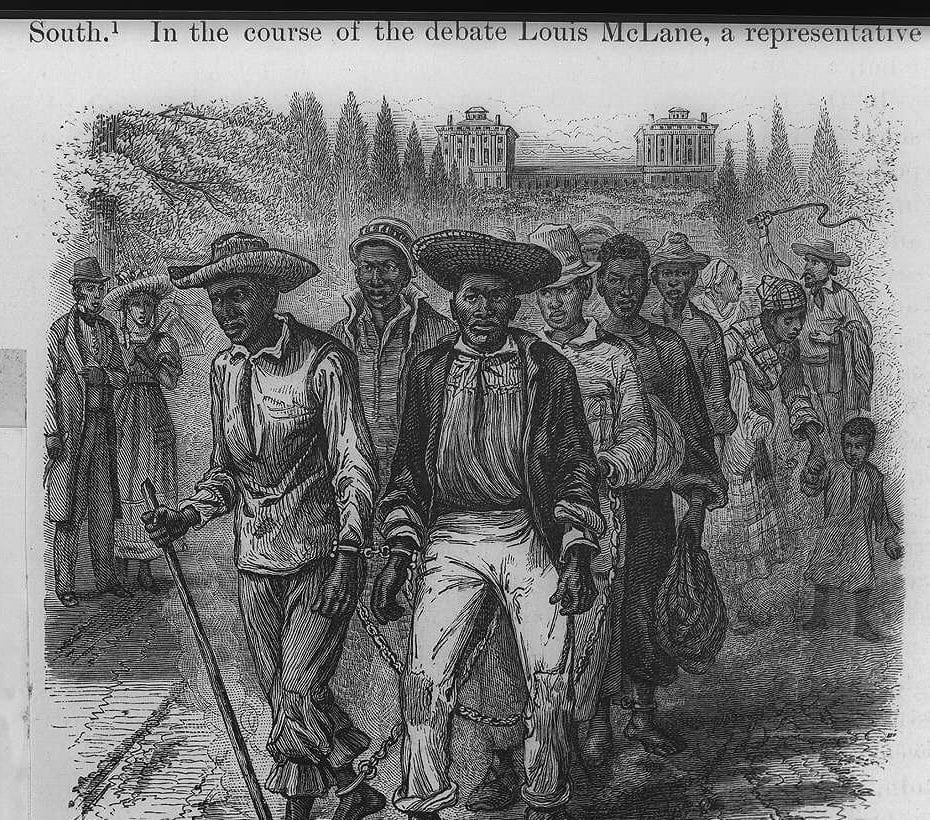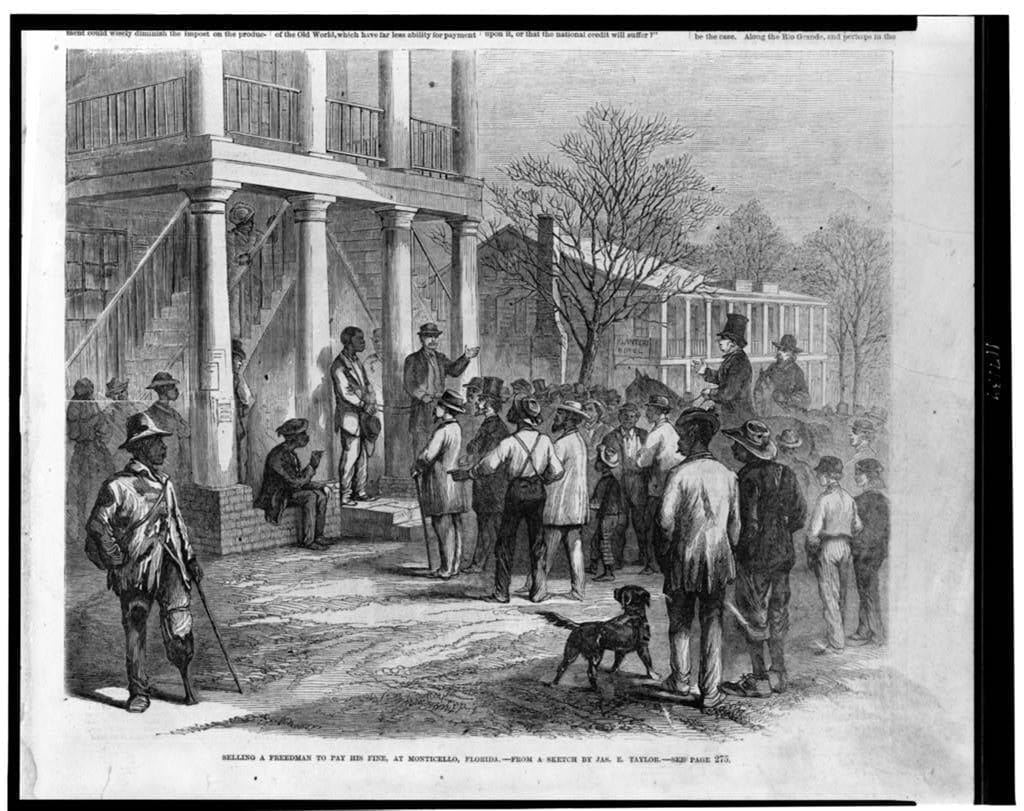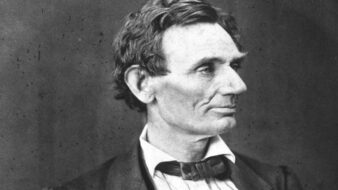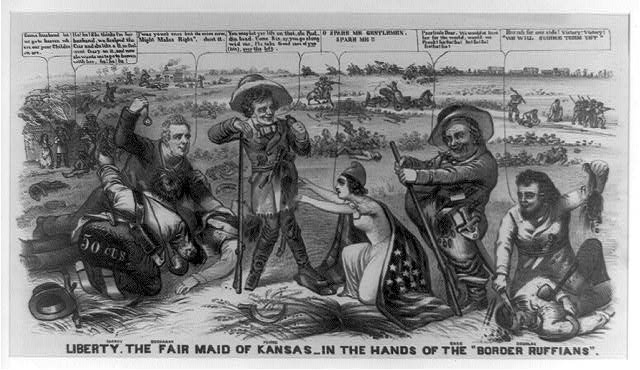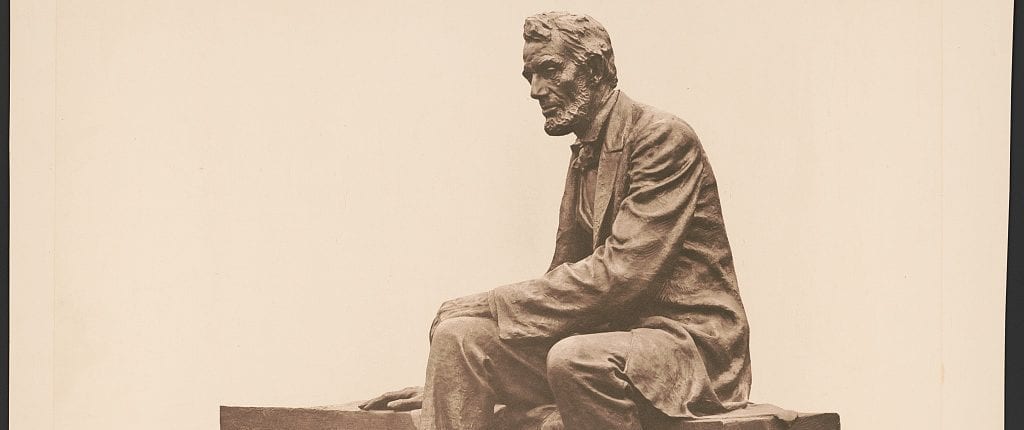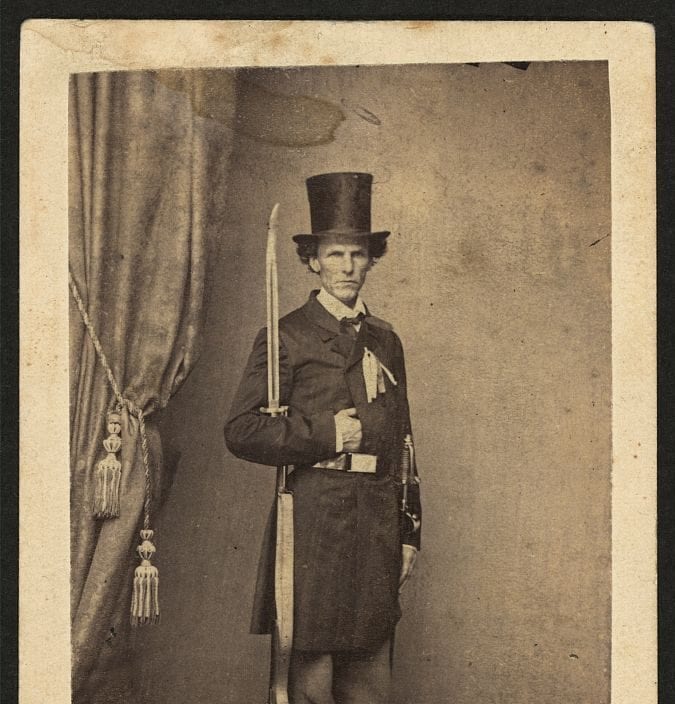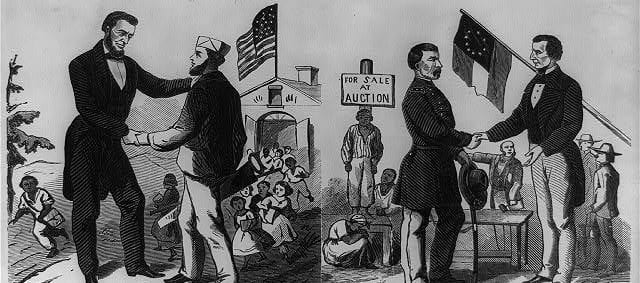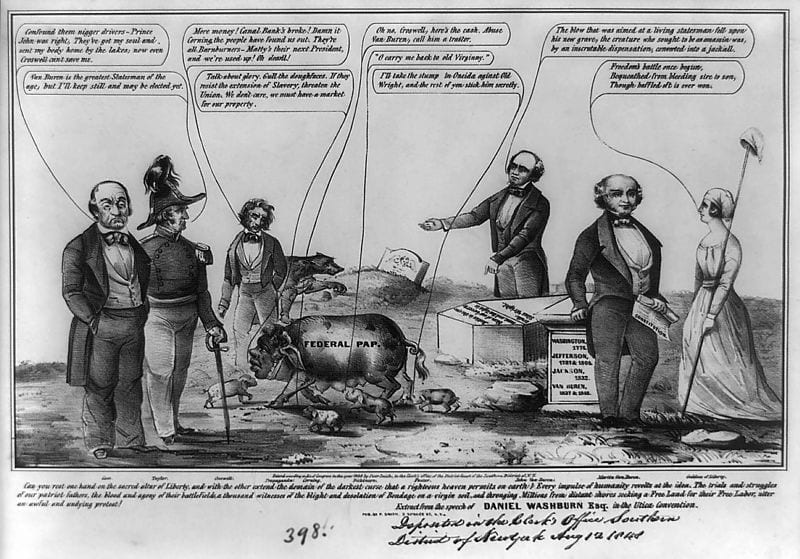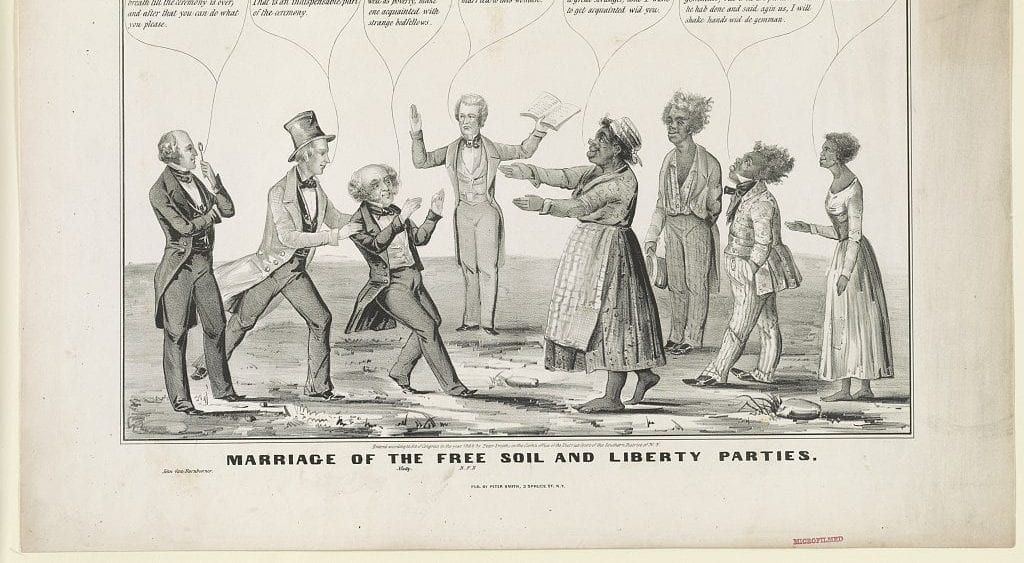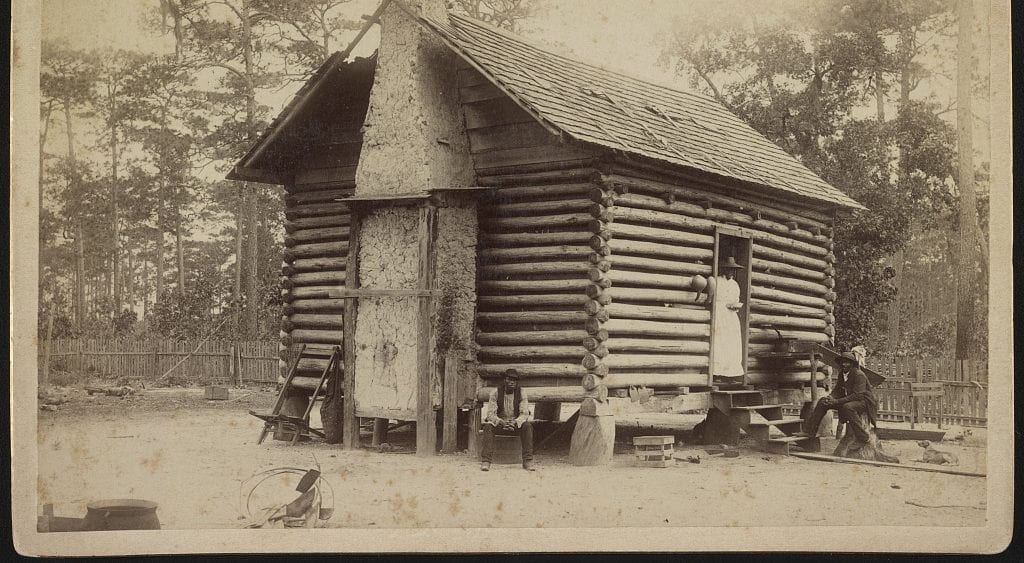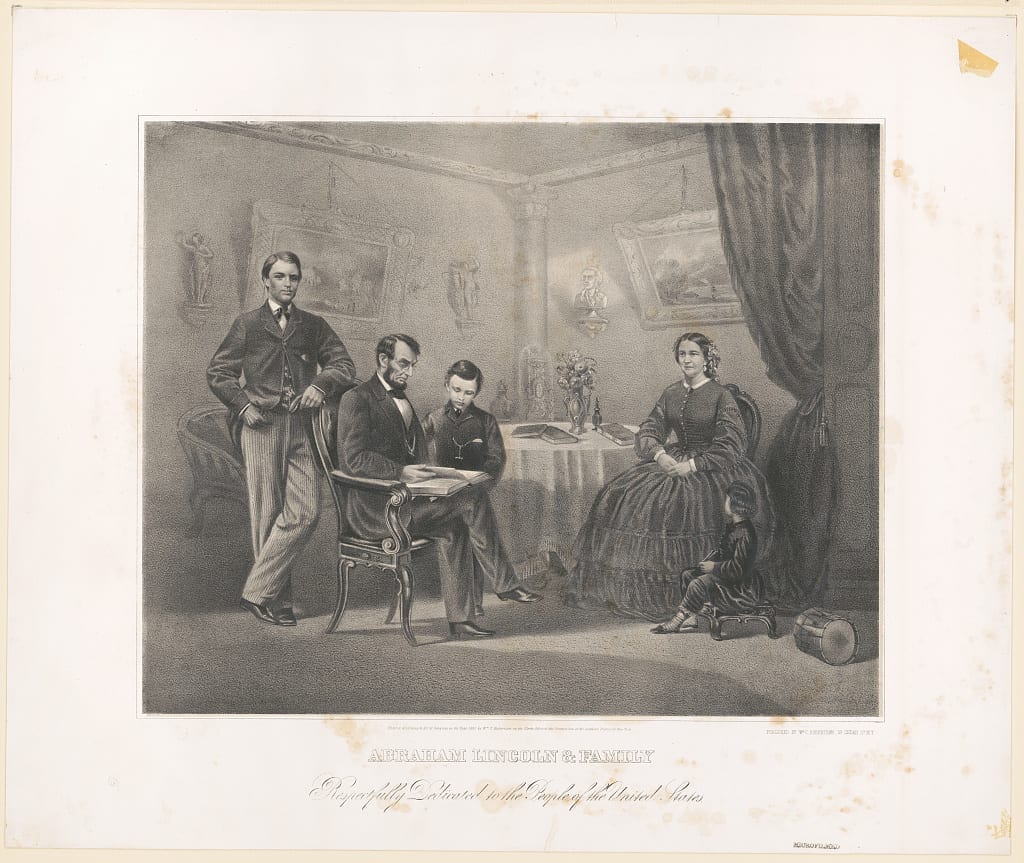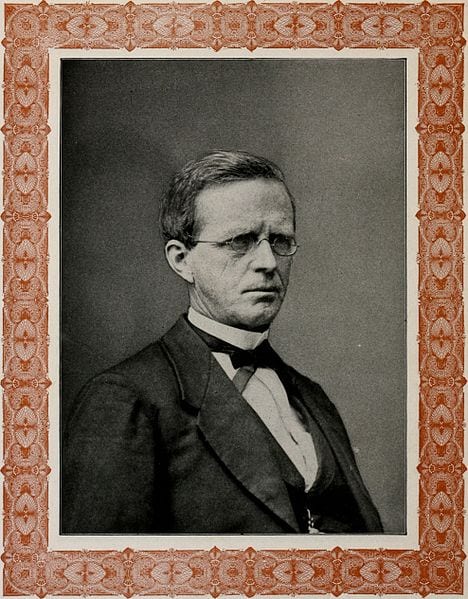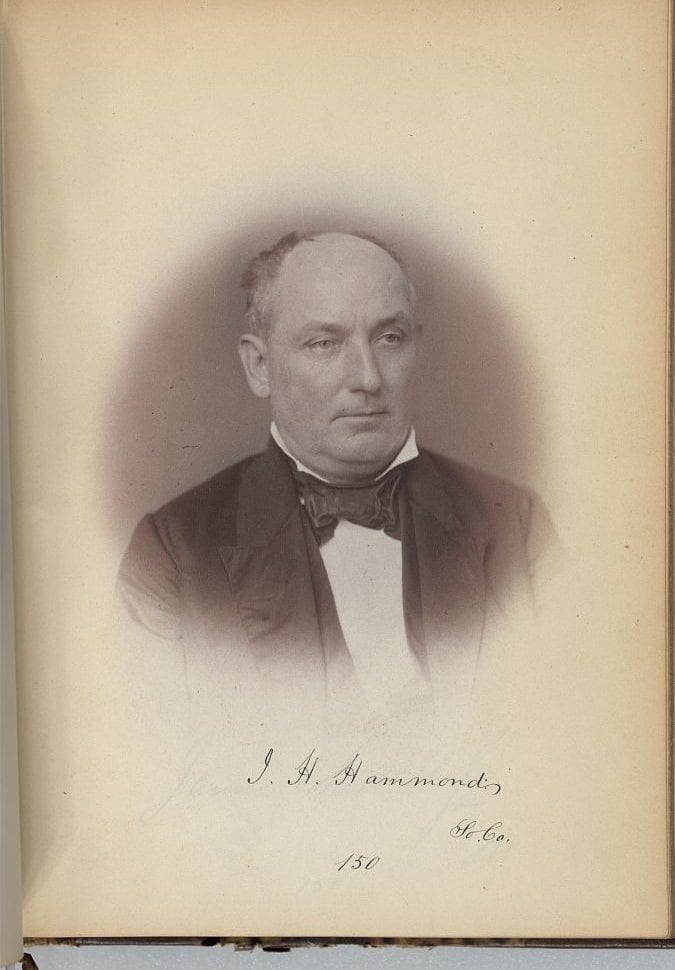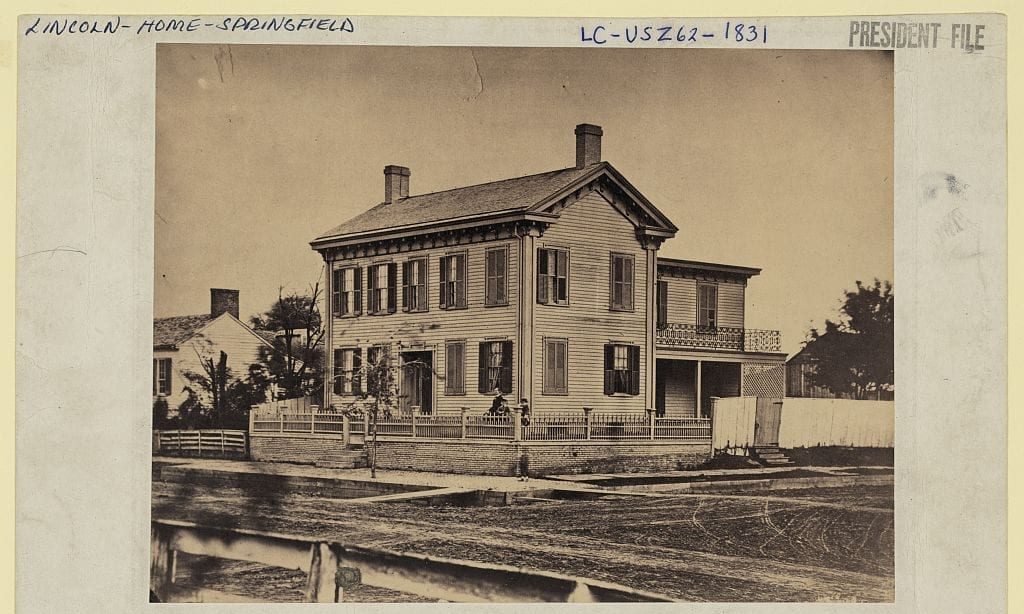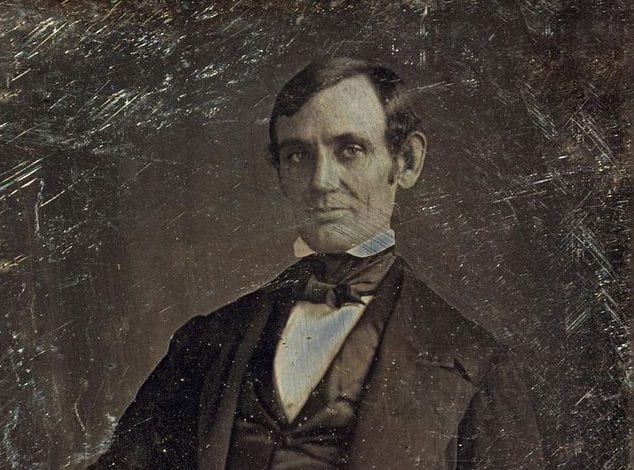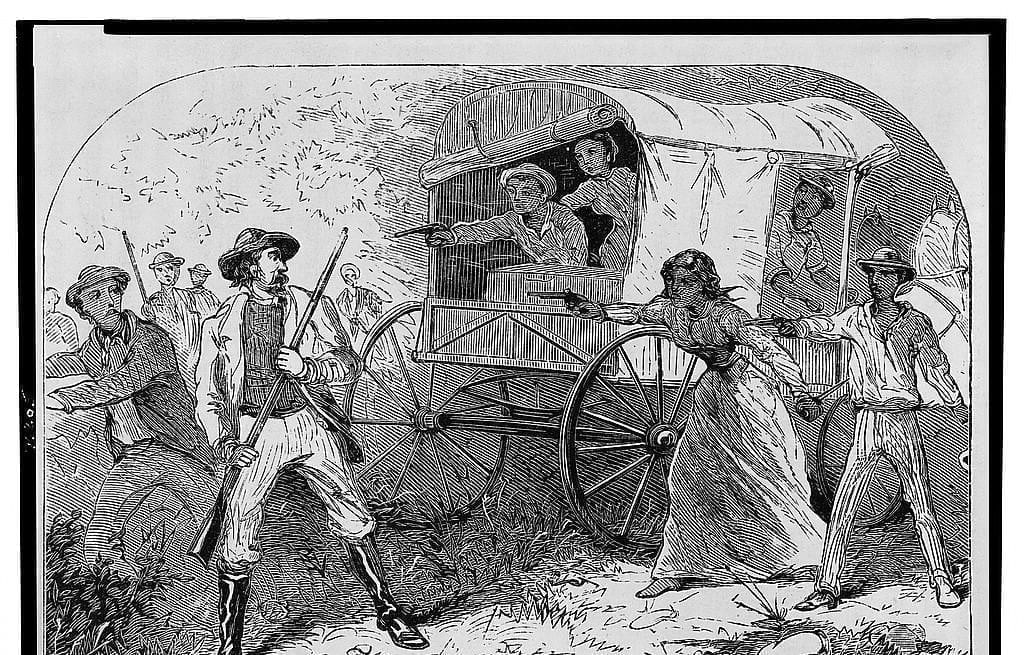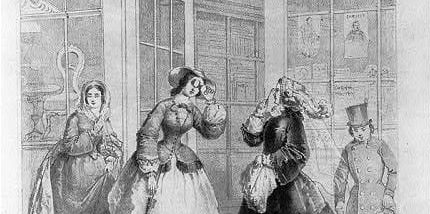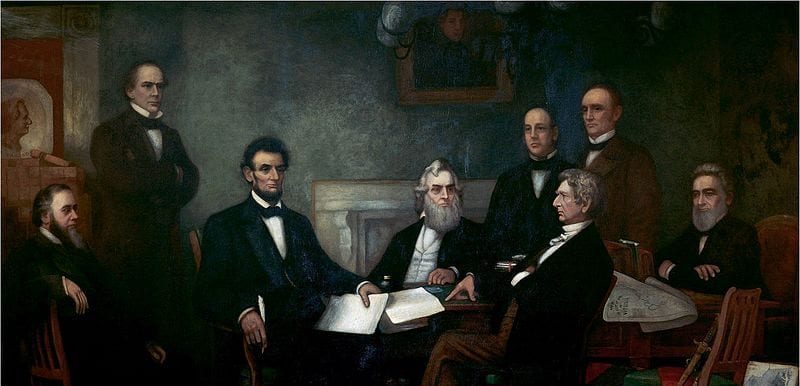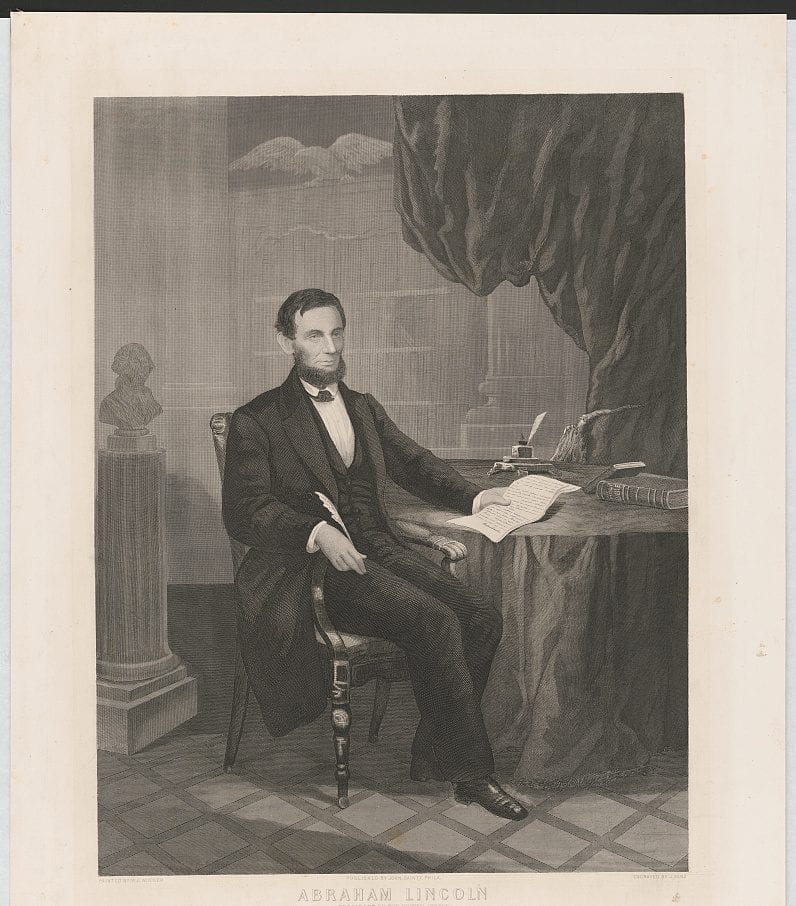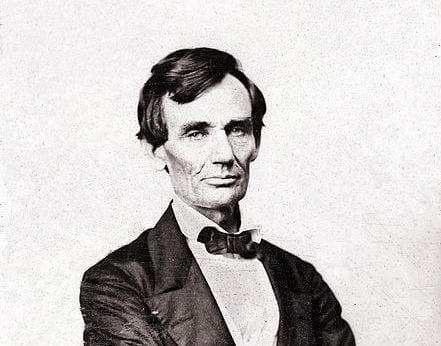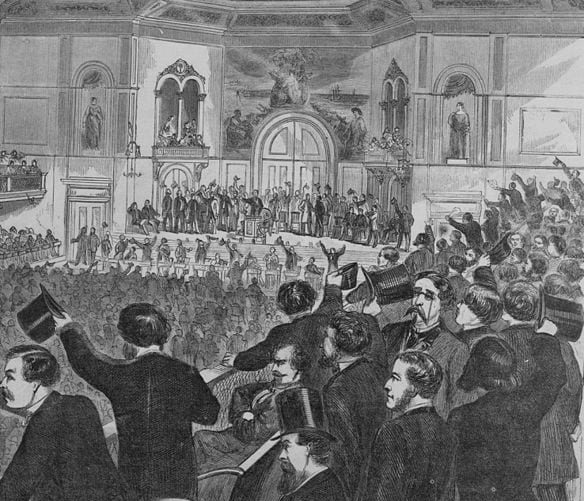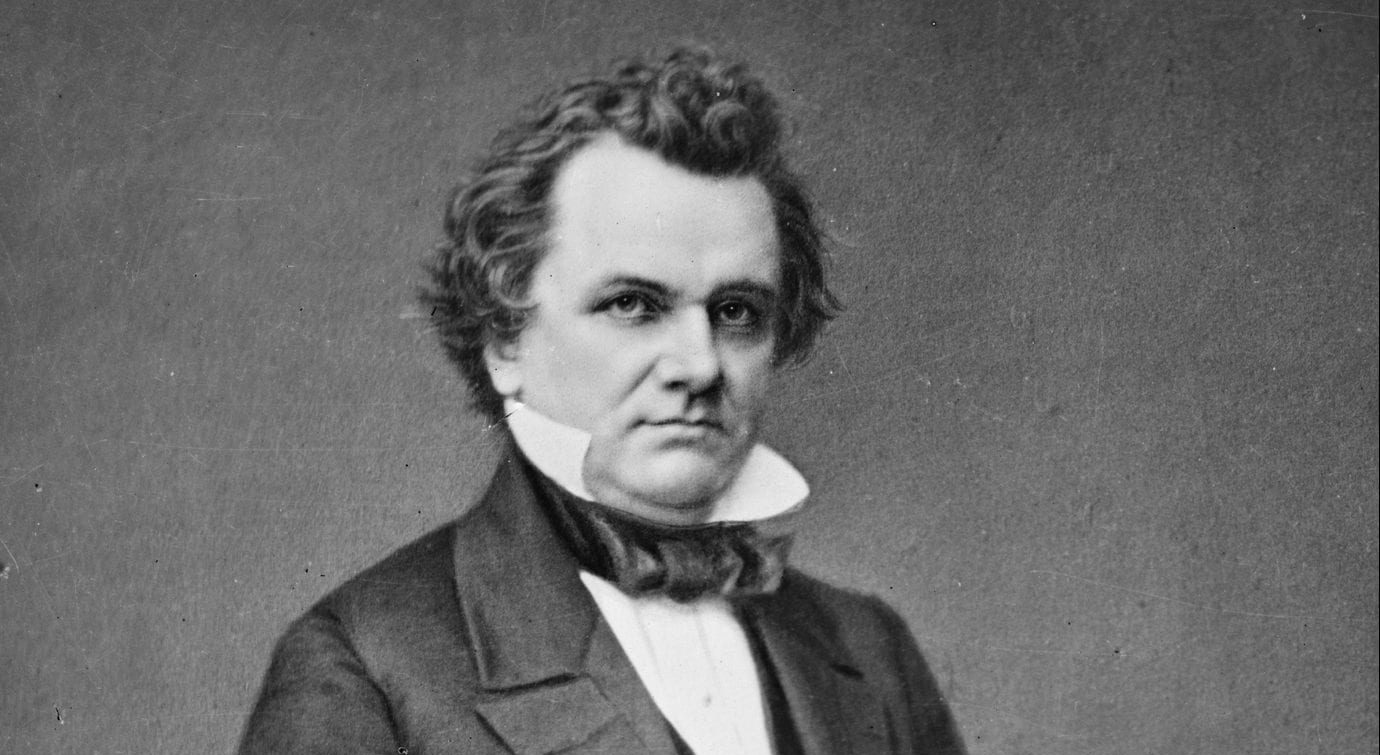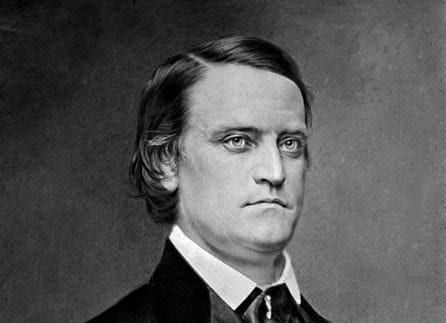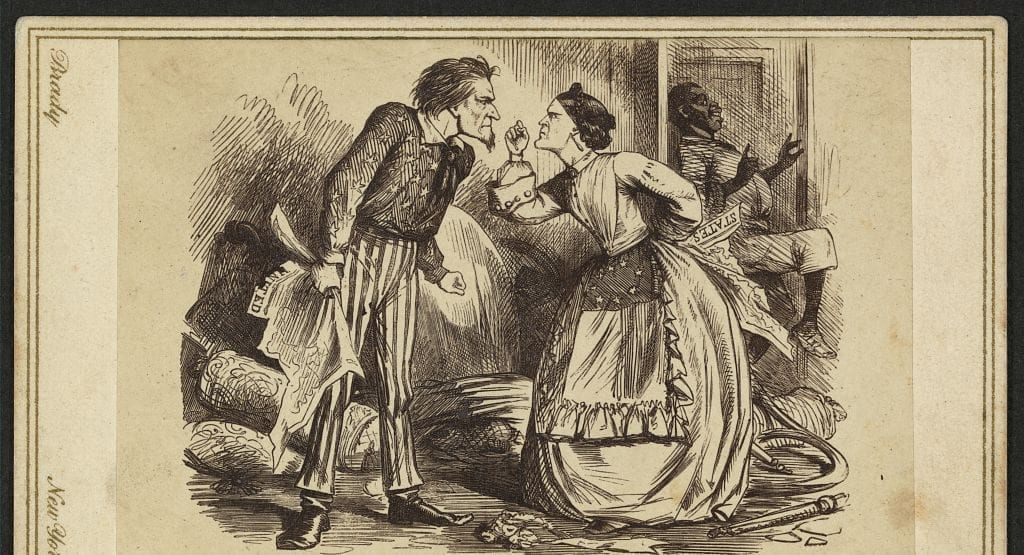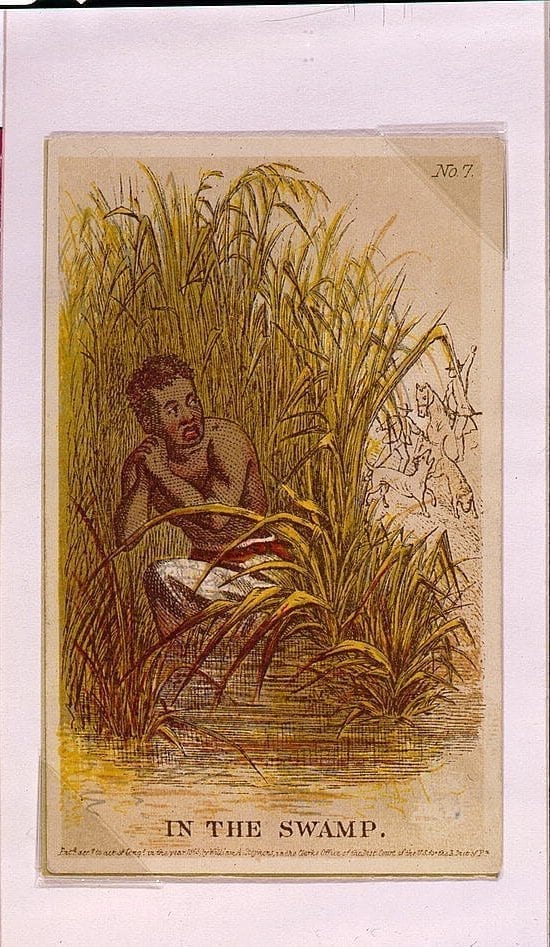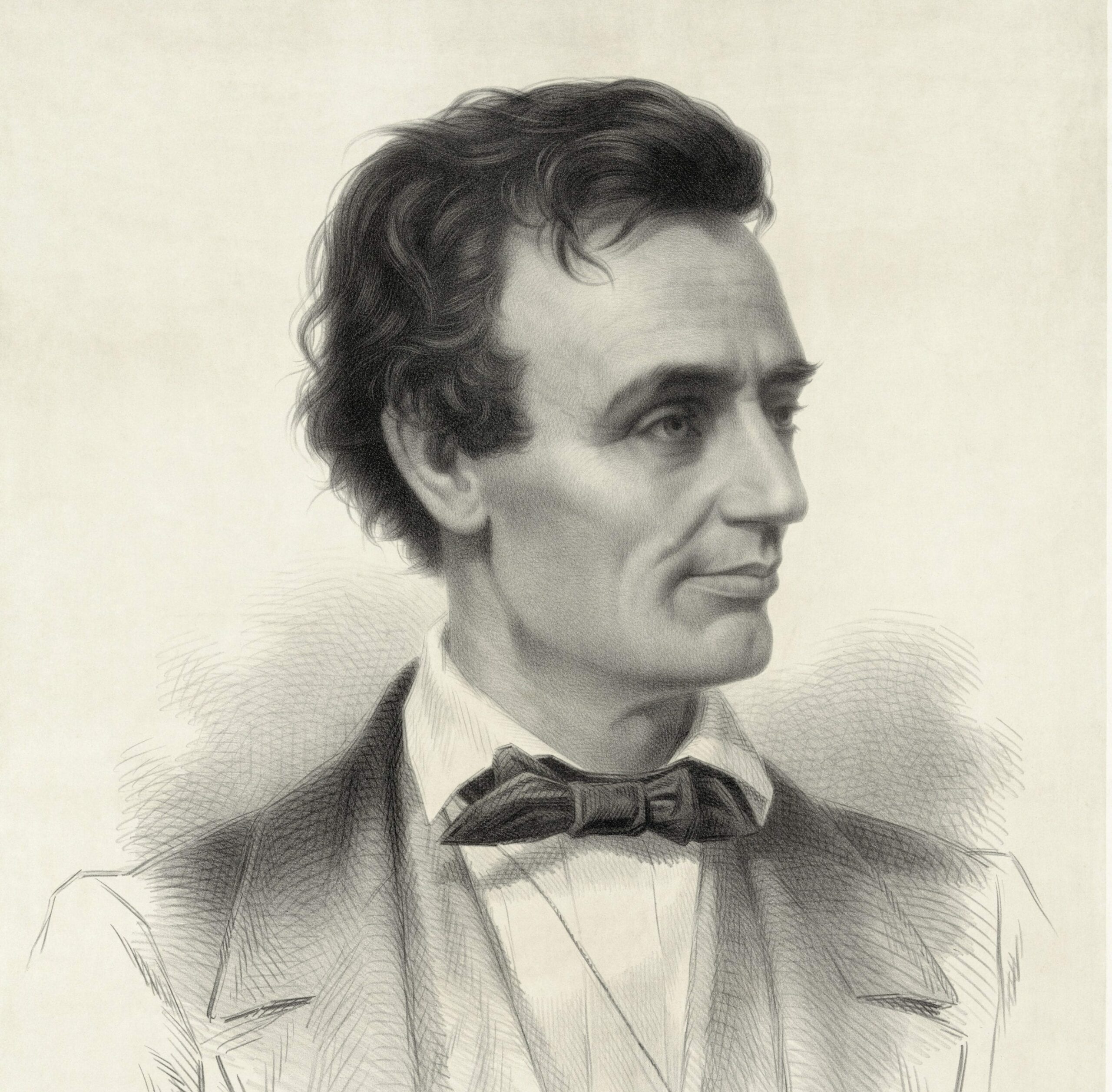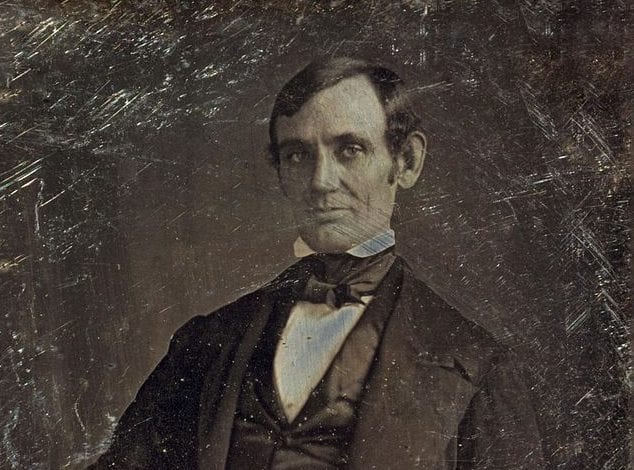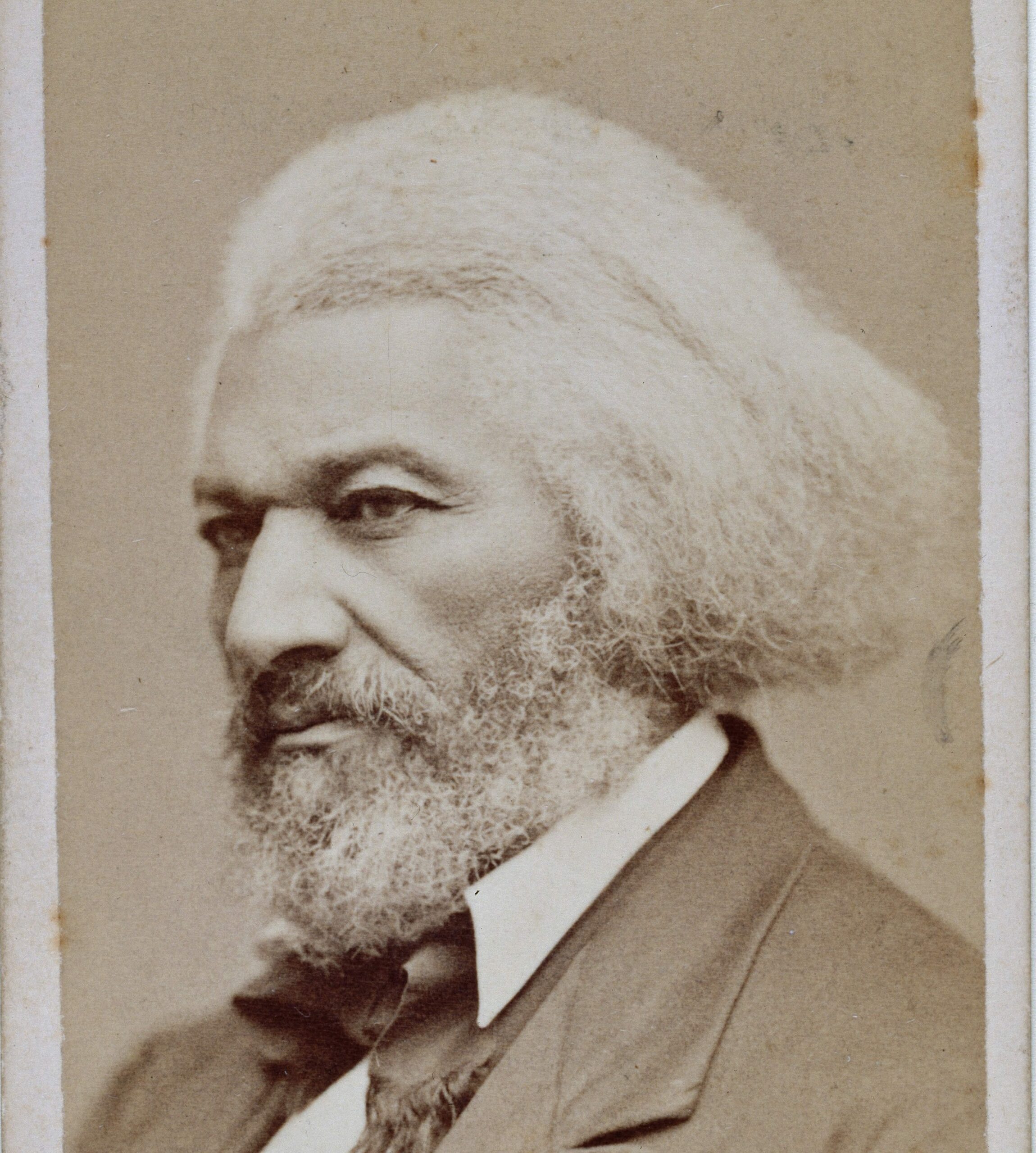
No study questions
No related resources
I will show you another charge made by Mr. Lincoln against me, as an offset to his determination of willingness to take back any thing that is incorrect, and to correct any false statement he may have made. He has several times charged that the Supreme Court, President Pierce, President Buchanan, and myself, at the time I introduced the Nebraska bill in January, 1854, at Washington, entered into a conspiracy to establish slavery all over this country. I branded this charge as a falsehood, and then he repeated it, asked me to analyze its truth and answer it. I told him, “Mr. Lincoln, I know what you are after—you want to occupy my time in personal matters, to prevent me from showing up the revolutionary principles which the Abolition party—whose candidate you are—have proclaimed to the world.” But he asked me to analyze his proof, and I did so. I called his attention to the fact that at the time the Nebraska bill was introduced, there was no such case as the Dred Scott case pending in the Supreme Court, nor was it brought there for years afterward, and hence that it was impossible there could have been any such conspiracy between the Judges of the Supreme Court and the other parties involved. I proved by the record that the charge was false, and what did he answer? Did he take it back like an honest man and say that he had been mistaken? No; he repeated the charge, and said, that although there was no such case pending that year, there was an understanding between the Democratic owners of Dred Scott and the Judges of the Supreme Court and other parties involved, that the case should be brought up. I then demanded to know who these Democratic owners of Dred Scott were. He could not or would not tell; he did not know. In truth, there were no Democratic owners of Dred Scott on the face of the land. Dred Scott was owned at that time by the Rev. Dr. Chaffee, an Abolition member of Congress from Springfield, Massachusetts, and his wife; and Mr. Lincoln ought to have known that Dred Scott was so owned, for the reason that as soon as the decision was announced by the court, Dr. Chaffee and his wife executed a deed emancipating him, and put that deed on record. It was a matter of public record, therefore, that at the time the case was taken to the Supreme Court, Dred Scott was owned by an Abolition member of Congress, a friend of Lincoln’s, and a leading man of his party, while the defense was conducted by Abolition lawyers—and thus the Abolitionists managed both sides of the case. I have exposed these facts to Mr. Lincoln, and yet he will not withdraw his charge of conspiracy. I now submit to you whether you can place any confidence in a man who continues to make a charge when its utter falsity is proven by the public records. I will state another fact to show how utterly reckless and unscrupulous this charge against the Supreme Court, President Pierce, President Buchanan and myself is. Lincoln says that President Buchanan was in the conspiracy at Washington in the winter of 1854, when the Nebraska bill was introduced. The history of this country shows that James Buchanan was at that time representing this country at the Court of St. James, Great Britain, with distinguished ability and usefulness, that he had not been in the United States for nearly a year previous, and that he did not return until about three years after. Yet Mr. Lincoln keeps repeating this charge of conspiracy against Mr. Buchanan when the public records prove it to be untrue. Having proved it to be false as far as the Supreme Court and President Buchanan are concerned, I drop it, leaving the public to say whether I, by myself, without their concurrence, could have gone into a conspiracy with them. My friends, you see that the object clearly is to conduct the canvass on personal matters, and hunt me down with charges that are proven to be false by the public records of the country. I am willing to throw open my whole public and private life to the inspection of any man, or all men who desire to investigate it. Having resided among you twenty—five years, during nearly the whole of which time a public man, exposed to more assaults, perhaps more abuse than any man living of my age, or who ever did live, and having survived it all and still commanded your confidence, I am willing to trust to your knowledge of me and my public conduct without making any more defense against these assaults.
Fellow—citizens, I came here for the purpose of discussing the leading political topics which now agitate the country. I have no charges to make against Mr. Lincoln, none against Mr. Trumbull, and none against any man who is a candidate, except in repelling their assaults upon me. If Mr. Lincoln is a man of bad character, I leave you to find it out; if his votes in the past are not satisfactory, I leave others to ascertain the fact; if his course on the Mexican war was not in accordance with your notions of patriotism and fidelity to our own country as against a public enemy, I leave you to ascertain the fact. I have no assaults to make upon him, except to trace his course on the questions that now divide the country and engross so much of the people’s attention.
You know that prior to 1854 this country was divided into two great political parties, one the Whig, the other the Democratic. I, as a Democrat for twenty years prior to that time, had been in public discussions in this State as an advocate of Democratic principles, and I can appeal with confidence to every old line Whig within the hearing of my voice to bear testimony that during all that period I fought you Whigs like a man on every question that separated the two parties. I had the highest respect for Henry Clay as a gallant party leader, as an eminent statesman, and as one of the bright ornaments of this country; but I conscientiously believed that the Democratic party was right on the questions which separated the Democrats from the Whigs. The man does not live who can say that I ever personally assailed Henry Clay or Daniel Webster, or any one of the leaders of that great party, whilst I combated with all my energy the measures they advocated. What did we differ about in those days? Did Whigs and Democrats differ about this slavery question? On the contrary, did we not, in 1850, unite to a man in favor of that system of Compromise measures which Mr. Clay introduced, Webster defended, Cass supported, and Fillmore approved and made the law of the land by his signature. While we agreed on those Compromise measures, we differed about a bank, the tariff, distribution, the specie circular, the sub—treasury, and other questions of that description. Now, let me ask you, which one of those questions on which Whigs and Democrats then differed now remains to divide the two great parties? Every one of those questions which divided Whigs and Democrats has passed away, the country has outgrown them, they have passed into history. Hence it is immaterial whether you were right or I was right on the bank, the sub—treasury, and other questions, because they no longer continue living issues. What, then, has taken the place of those questions about which we once differed? The slavery question has now become the leading and controlling issue; that question on which you and I agreed, on which the Whigs and Democrats united, has now become the leading issue between the National Democracy on the one side, and the Republican or Abolition party on the other.
Just recollect for a moment the memorable contest of 1850, when this country was agitated from its center to its circumference by the slavery agitation. All eyes in this nation were then turned to the three great lights that survived the days of the Revolution. They looked to Clay, then in retirement at Ashland, and to Webster and Cass in the United States Senate. Clay had retired to Ashland, having, as he supposed, performed his mission on earth, and was preparing himself for a better sphere of existence in another world. In that retirement he heard the discordant, harsh and grating sounds of sectional strife and disunion, and he aroused and came forth and resumed his seat in the Senate, that great theater of his great deeds. From the moment that Clay arrived among us he became the leader of all the Union men, whether Whigs or Democrats. For nine months we each assembled, each day, in the council—chamber, Clay in the chair, with Cass upon his right hand and Webster upon his left, and the Democrats and Whigs gathered around, forgetting differences, and only animated by one common, patriotic sentiment to devise means and measures by which we could defeat the mad and revolutionary scheme of the Northern Abolitionists and Southern disunionists. We did devise those means. Clay brought them forward, Cass advocated them, the Union Democrats and Union Whigs voted for them, Fillmore signed them, and they gave peace and quiet to the country. Those Compromise measures of 1850 were founded upon the great fundamental principle that the people of each State and each Territory ought to be left free to form and regulate their own domestic institutions in their own way, subject only to the Federal Constitution. I will ask every old line Democrat and every old line Whig within the hearing of my voice, if I have not truly stated the issues as they then presented themselves to the country. You recollect that the Abolitionists raised a howl of indignation, and cried for vengeance and the destruction of Democrats and Whigs both, who supported those Compromise measures of 1850. When I returned home to Chicago, I found the citizens inflamed and infuriated against the authors of those great measures. Being the only man in that city who was held responsible for affirmative votes on all those measures, I came forward and addressed the assembled inhabitants, defended each and every one of Clay’s Compromise measures as they passed the Senate and the House, and were approved by President Fillmore. Previous to that time, the city council had passed resolutions nullifying the act of Congress, and instructing the police to withhold all assistance from its execution; but the people of Chicago listened to my defense, and like candid, frank, conscientious men, when they became convinced that they had done an injustice to Clay, Webster, Cass, and all of us who had supported those measures, they repealed their nullifying resolutions and declared that the laws should be executed and the supremacy of the Constitution maintained. Let it always be recorded in history to the immortal honor of the people of Chicago, that they returned to their duty when they found that they were wrong, and did justice to those whom they had blamed and abused unjustly. When the Legislature of this State assembled that year, they proceeded to pass resolutions approving the Compromise measures of 1850. When the Whig party assembled in 1852 at Baltimore in National Convention for the last time, to nominate Scott for the Presidency, they adopted as a part of their platform the Compromise measures of 1850 as the cardinal plank upon which every Whig would stand and by which he would regulate his future conduct. When the Democratic party assembled at the same place one month after, to nominate General Pierce, we adopted the same platform so far as those Compromise measures were concerned, agreeing that we would stand by those glorious measures as a cardinal article in the Democratic faith. Thus you see that in 1852 all the old Whigs and all the old Democrats stood on a common plank so far as this slavery question was concerned, differing on other questions.
Now, let me ask, how is it that since that time so many of you Whigs have wandered from the true path marked out by Clay and carried out broad and wide by the great Webster? How is it that so many old line Democrats have abandoned the old faith of their party, and joined with Abolitionism and Freesoilism to overturn the platform of the old Democrats, and the platform of the old Whigs? You cannot deny that since 1854 there has been a great revolution on this one question. How has it been brought about? I answer, that no sooner was the sod grown green over the grave of the immortal Clay, no sooner was the rose planted on the tomb of the god—like Webster, than many of the leaders of the Whig party, such as Seward, of New York, and his followers, led off and attempted to abolitionize the Whig party, and transfer all your old Whigs, bound hand and foot, into the Abolition camp. Seizing hold of the temporary excitement produced in this country by the introduction of the Nebraska bill, the disappointed politicians in the Democratic party united with the disappointed politicians in the Whig party, and endeavored to form a new party composed of all the Abolitionists, of abolitionized Democrats and abolitionized Whigs, banded together in an Abolition platform.
And who led that crusade against National principles in this State? I answer, Abraham Lincoln on behalf of the Whigs, and Lyman Trumbull on behalf of the Democrats, formed a scheme by which they would abolitionize the two great parties in this State on condition that Lincoln should be sent to the United States Senate in place of General Shields, and that Trumbull should go to Congress from the Belleville District, until I would be accommodating enough either to die or resign for his benefit, and then he was to go to the Senate in my place. You all remember that during the year 1854, these two worthy gentlemen, Mr. Lincoln and Mr. Trumbull, one an old line Whig and the other an old line Democrat, were hunting in partnership to elect a Legislature against the Democratic party. I canvassed the State that year from the time I returned home until the election came off, and spoke in every county that I could reach during that period. In the northern part of the State I found Lincoln’s ally, in the person of FRED DOUGLASS, THE NEGRO, preaching Abolition doctrines, while Lincoln was discussing the same principles down here, and Trumbull, a little farther down, was advocating the election of members to the Legislature who would act in concert with Lincoln’s and Fred Douglass’s friends. I witnessed an effort made at Chicago by Lincoln’s then associates, and now supporters, to put Fred Douglass, the negro, on the stand at a Democratic meeting, to reply to the illustrious General Cass, when he was addressing the people there. They had the same negro hunting me down, and they now have a negro traversing the northern counties of the State, and speaking in behalf of Lincoln. Lincoln knows that when we were at Freeport in joint discussion, there was a distinguished colored friend of his there then who was on the stump for him, and who made a speech there the night before we spoke, and another the night after, a short distance from Freeport, in favor of Lincoln, and in order to show how much interest the colored brethren felt in the success of their brother Abe, I have with me here, and would read it if it would not occupy too much of my time, a speech made by Fred Douglass in Poughkeepsie, N. Y., a short time since, to a large Convention, in which he conjures all the friends of negro equality and negro citizenship to rally as one man around Abraham Lincoln, the perfect embodiment of their principles, and by all means to defeat Stephen A. Douglas. Thus you find that this Republican party in the northern part of the State had colored gentlemen for their advocates in 1854, in company with Lincoln and Trumbull, as they have now. When, in October, 1854, I went down to Springfield to attend the State Fair, I found the leaders of this party all assembled together under the title of an anti—Nebraska meeting. It was Black Republicans up north, and anti—Nebraska at Springfield. I found Lovejoy, a high priest of Abolitionism, and Lincoln, one of the leaders who was towing the old line Whigs into the Abolition camp, and Trumbull, Sidney Breese, and Governor Reynolds, all making speeches against the Democratic party and myself, at the same place and in the same cause. The same men who are now fighting the Democratic party and the regular Democratic nominees in this State, were fighting us then. They did not then acknowledge that they had become Abolitionists, and many of them deny it now. Breese, Dougherty and Reynolds were then fighting the Democracy under the title of anti—Nebraska men, and now they are fighting the Democracy under the pretense that they are simon pure Democrats, saying that they are authorized to have every office—holder in Illinois beheaded who prefers the election of Douglas to that of Lincoln, or the success of the Democratic ticket in preference to the Abolition ticket for members of Congress, State officers, members of the Legislature, or any office in the State. They canvassed the State against us in 1854, as they are doing now, owning different names and different principles in different localities, but having a common object in view, viz: The defeat of all men holding national principles in opposition to this sectional Abolition party. They carried the Legislature in 1854, and when it assembled in Springfield they proceeded to elect a United States Senator, all voting for Lincoln with one or two exceptions, which exceptions prevented them from quite electing him. And why should they not elect him? Had not Trumbull agreed that Lincoln should have Shields’s place? Had not the Abolitionists agreed to it? Was it not the solemn compact, the condition on which Lincoln agreed to abolitionize the old Whigs that he should be Senator? Still, Trumbull having control of a few abolitionized Democrats, would not allow them all to vote for Lincoln on any one ballot, and thus kept him for some time within one or two votes of an election, until he worried out Lincoln’s friends, and compelled them to drop him and elect Trumbull in violation of the bargain. I desire to read you a piece of testimony in confirmation of the notoriously public facts which I have stated to you. Col. James H. Matheny, of Springfield, is, and for twenty years has been, the confidential personal and political friend and manager of Mr. Lincoln. Matheny is this very day the candidate of the Republican or Abolition party for Congress against the gallant Major Thos. L. Harris, in the Springfield District, and is making speeches for Lincoln and against me. I will read you the testimony of Matheny about this bargain between Lincoln and Trumbull when they undertook to abolitionize Whigs and Democrats only four years ago. Matheny being mad at Trumbull for having played a Yankee trick on Lincoln, exposed the bargain in a public speech two years ago, and I will read the published report of that speech, the correctness of which Mr. Lincoln will not deny:
“The Whigs, Abolitionists, Know Nothings, and renegade Democrats, made a solemn compact for the purpose of carrying this State against the Democracy on this plan: 1st. That they would all combine and elect Mr. Trumbull to Congress, and thereby carry his district for the Legislature, in order to throw all the strength that could be obtained into that body against the Democrats. 2d. That when the Legislature should meet, the officers of that body, such as speaker, clerks, door—keepers, etc., would be given to the Abolitionists; and 3d. That the Whigs were to have the United States Senator. That, accordingly, in good faith Trumbull was elected to Congress, and his district carried for the Legislature, and when it convened the Abolitionists got all the officers of that body, and thus far the ‘bond’ was fairly executed. The Whigs, on their part, demanded the election of Abraham Lincoln to the United States Senate, that the bond might be fulfilled, the other parties to the contract having already secured to themselves all that was called for. But, in the most perfidious manner, they refused to elect Mr. Lincoln; and the mean, low—lived, sneaking Trumbull succeeded by pleading all that was required by any party, in thrusting Lincoln aside and foisting himself, an excrescence from the rotten bowels of the Democracy, into the United States Senate; and thus it has ever been, that an honest man makes a bad bargain when he conspires or contracts with rogues.”
Lincoln’s confidential friend, Matheny, thought that Lincoln made a bad bargain when he conspired with such rogues as Trumbull and the Abolitionists. I would like to know whether Lincoln had as high opinion of Trumbull’s veracity when the latter agreed to support him for the Senate, and then cheated him as he does now, when Trumbull comes forward and makes charges against me. You could not then prove Trumbull an honest man either by Lincoln, by Matheny, or by any of Lincoln’s friends. They charged every where that Trumbull had cheated them out of the bargain, and Lincoln found sure enough that it was a bad bargain to contract and conspire with rogues.
And now I will explain to you what has been a mystery all over the State and Union, the reason why Lincoln was nominated for the United States Senate by the Black Republican Convention. You know it has never been usual for any party, or any Convention, to nominate a candidate for United States Senator. Probably this was the first time that such a thing was ever done. The Black Republican Convention had not been called for that purpose, but to nominate a State ticket, and every man was surprised and many disgusted when Lincoln was nominated. Archie Williams thought he was entitled to it, Browning knew that he deserved it, Wentworth was certain that he would get it, Peck had hopes, Judd felt sure that he was the man, and Palmer had claims and had made arrangements to secure it; but to their utter amazement, Lincoln was nominated by the Convention, and not only that, but he received the nomination unanimously, by a resolution declaring that Abraham Lincoln was “the first, last, and only choice” of the Republican party. How did this occur? Why, because they could not get Lincoln’s friends to make another bargain with “rogues,” unless the whole party would come up as one man and pledge their honor that they would stand by Lincoln first, last and all the time, and that he should not be cheated by Lovejoy this time, as he was by Trumbull before. Thus, by passing this resolution, the Abolitionists are all for him, Lovejoy and Farnsworth are canvassing for him, Giddings is ready to come here in his behalf, and the negro speakers are already on the stump for him, and he is sure not to be cheated this time. He would not go into the arrangement until he got their bond for it, and Trumbull is compelled now to take the stump, get up false charges against me, and travel all over the State to try and elect Lincoln, in order to keep Lincoln’s friends quiet about the bargain in which Trumbull cheated them four years ago. You see, now, why it is that Lincoln and Trumbull are so mighty fond of each other. They have entered into a conspiracy to break me down by these assaults on my public character. in order to draw my attention from a fair exposure of the mode in which they attempted to abolitionize the old Whig and the old Democratic parties and lead them captive into the Abolition camp. Do you not all remember that Lincoln went around here four years ago making speeches to you, and telling that you should all go for the Abolition ticket, and swearing that he was as good a Whig as he ever was; and that Trumbull went all over the State making pledges to the old Democrats, and trying to coax them into the Abolition camp, swearing by his Maker, with the uplifted hand, that he was still a Democrat, always intended to be, and that never would he desert the Democratic party. He got your votes to elect an Abolition Legislature, which passed Abolition resolutions, attempted to pass Abolition laws, and sustained Abolitionists for office, State and National. Now, the same game is attempted to be played over again. Then Lincoln and Trumbull made captives of the old Whigs and old Democrats and carried them into the Abolition camp, where Father Giddings, the high—priest of Abolitionism, received and christened them in the dark cause just as fast as they were brought in. Giddings found the converts so numerous that he had to have assistance, and he sent for John P. Hale, N. P. Banks, Chase, and other Abolitionists, and they came on, and with Lovejoy and Fred Douglass, the negro, helped to baptize these new converts as Lincoln, Trumbull, Breese, Reynolds, and Dougherty could capture them and bring them within the Abolition clutch. Gentlemen, they are now around making the same kind of speeches. Trumbull was down in Monroe county the other day assailing me, and making a speech in favor of Lincoln, and I will show you under what notice his meeting was called. You see these people are Black Republicans or Abolitionists up north, while at Springfield to—day, they dare not call their Convention “Republican,” but are obliged to say “a Convention of all men opposed to the Democratic party,” and in Monroe county and lower Egypt Trumbull advertises their meetings as follows:
A meeting of the Free Democracy will take place at Waterloo, on Monday September 12th inst., whereat Hon. Lyman Trumbull, Hon. John Baker, and others, will address the people upon the different political topics of the day. Members of all parties are cordially invited to be present, and hear and determine for themselves.
Did you ever before hear of this new party called the “Free Democracy?”
What object have these Black Republicans in changing their name in every county? They have one name in the north, another in the center, and another in the South. When I used to practice law before my distinguished judicial friend, whom I recognize in the crowd before me, if a man was charged with horse—stealing and the proof showed that he went by one name in Stephenson county, another in Sangamon, a third in Monroe, and a fourth in Randolph, we thought that the fact of his changing his name so often to avoid detection, was pretty strong evidence of his guilt. I would like to know why it is that this great Freesoil Abolition party is not willing to avow the same name in all parts of the State? (They dare not.) If this party believes that its course is just, why does it not avow the same principles in the North, and in the South, in the East and in the West, wherever the American flag waves over American soil? (Cheers.)
A VOICE— “The party does not call itself Black Republican in the North.”
MR. DOUGLAS—Sir if you will get a copy of the paper published at Waukegan, fifty miles from Chicago, which advocates the election of Mr. Lincoln, and has his name flying at its mast—head, you will find that it declares that “this paper is devoted to the cause” of Black Republicanism. (Good, hit him again, and cheers.) I had a copy of it and intended to bring it down here into Egypt to let you see what name the party rallied under up in the northern part of the State, and to convince you that their principles are as different in the two sections of the State as is their name. I am sorry that I have mislaid it and have not got it here. Their principles in the north are jet—black, in the center they are in color a decent mulatto, and in lower Egypt they are almost white. Why, I admired many of the white sentiments contained in Lincoln’s speech at Jonesboro, and could not help but contrast them with the speeches of the same distinguished orator made in the northern part of the State. Down here he denies that the Black Republican party is opposed to the admission of any more slave States, under any circumstances, and says that they are willing to allow the people of each State, when it wants to come into the Union, to do just as it pleases on the question of slavery. In the North, you find Lovejoy, their candidate for Congress in the Bloomington District, Farnsworth, their candidate in the Chicago District, and Washburne, their candidate in the Galena District, all declaring that never will they consent, under any circumstances, to admit another slave State, even if the people want it. Thus, while they avow one set of principles up there, they avow another and entirely different set down here. And here let me recall to Mr. Lincoln the scriptural quotation which he has applied to the Federal Government, that a house divided against itself cannot stand, and ask him how does he expect this Abolition party to stand when in one—half of the State it advocates a set of principles which it has repudiated in the other half?
I am told that I have but eight minutes more. I would like to talk to you an hour and a half longer, but I will make the best use I can of the remaining eight minutes. Mr. Lincoln said in his first remarks that he was not in favor of the social and political equality of the negro with the white man. Every where up north he has declared that he was not in favor of the social and political equality of the negro, but he would not say whether or not he was opposed to negroes voting and negro citizenship. I want to know whether he is for or against negro citizenship? He declared his utter opposition to the Dred Scott decision, and advanced as a reason that the court had decided that it was not possible for a negro to be a citizen under the Constitution of the United States. If he is opposed to the Dred Scott decision for that reason, he must be in favor of confering the right and privilege of citizenship upon the negro! I have been trying to get an answer from him on that point, but have never yet obtained one, and I will show you why. In every speech he made in the north he quoted the Declaration of Independence to prove that all men were created equal, and insisted that the phrase “all men,” included the negro as well as the white man, and that the equality rested upon Divine law. Here is what he said on that point:
“I should like to know if, taking this old Declaration of Independence, which declares that all men are equal upon principle, and making exceptions to it, where will it stop? If one man says it does not mean a negro, why may not another say it does not mean some other man? If that declaration is not the truth, let us get the statute book in which we find it and bear it out.”
Lincoln maintains there that the Declaration of Independence asserts that the negro is equal to the white man, and that under Divine law, and if he believes so it was rational for him to advocate negro citizenship, which, when allowed, puts the negro on an equality under the law. I say to you in all frankness, gentlemen, that in my opinion a negro is not a citizen, cannot be, and ought not to be, under the Constitution of the United States. I will not even qualify my opinion to meet the declaration of one of the Judges of the Supreme Court in the Dred Scott case, “that a negro descended from African parents, who was imported into this country as a slave is not a citizen, and cannot be.” I say that this Government was established on the white basis. It was made by white men, for the benefit of white men and their posterity forever, and never should be administered by any except white men. I declare that a negro ought not to be a citizen, whether his parents were imported into this country as slaves or not, or whether or not he was born here. It does not depend upon the place a negro’s parents were born, or whether they were slaves or not, but upon the fact that he is a negro, belonging to a race incapable of self—government, and for that reason ought not to be on an equality with white men. (Immense applause.)
My friends, I am sorry that I have not time to pursue this argument further, as I might have done but for the fact that Mr. Lincoln compelled me to occupy a portion of my time in repelling those gross slanders and falsehoods that Trumbull has invented against me and put in circulation. In conclusion, let me ask you why should this Government be divided by a geographical line—arraying all men North in one great hostile party against all men South? Mr. Lincoln tells you, in his speech at Springfield, “that a house divided against itself cannot stand; that this Government, divided into free and slave States, cannot endure permanently; that they must either be all free or all slave; all one thing or all the other.” Why cannot this Government endure divided into free and slave States, as our fathers made it? When this Government was established by Washington, Jefferson, Madison, Jay, Hamilton, Franklin, and the other sages and patriots of that day, it was composed of free States and slave States, bound together by one common Constitution. We have existed and prospered from that day to this thus divided, and have increased with a rapidity never before equaled in wealth, the extension of territory, and all the elements of power and greatness, until we have become the first nation on the face of the globe. Why can we not thus continue to prosper? We can if we will live up to and execute the Government upon those principles upon which our fathers established it. During the whole period of our existence Divine Providence has smiled upon us, and showered upon our nation richer and more abundant blessings than have ever been conferred upon any other.
Senator Douglas’ time here expired, and he stopped on the minute, amidst deafening applause.
MR. LINCOLN’S REJOINDER.
As Mr. Lincoln stepped forward, the crowd sent up three rousing cheers.
MR. LINCOLN said:
Fellow citizens—It follows as a matter of course that a half—hour answer to a speech of an hour and a half can be but a very hurried one. I shall only be able to touch upon a few of the points suggested by Judge Douglas, and give them a brief attention, while I shall have to totally omit others for the want of time.
Judge Douglas has said to you that he has not been able to get from me an answer to the question whether I am in favor of negro citizenship. So far as I know, the Judge never asked me the question before. [Applause.] He shall have no occasion to ever ask it again, for I tell him very frankly that I am not in favor of negro citizenship. [Renewed applause.] This furnishes me an occasion for saying a few words upon the subject. I mentioned in a certain speech of mine which has been printed, that the Supreme Court had decided that a negro could not possibly be made a citizen, and without saying what was my ground of complaint in regard to that, or whether I had any ground of complaint, Judge Douglas has from that thing manufactured nearly every thing that he ever says about my disposition to produce an equality between the negroes and the white people. If any one will read my speech, he will find I mentioned that as one of the points decided in the course of the Supreme Court opinions, but I did not state what objection I had to it. But Judge Douglas tells the people what my objection was when I did not tell them myself. Now my opinion is that the different States have the power to make a negro a citizen under the Constitution of the United States if they choose. The Dred Scott decision decides that they have not that power. If the State of Illinois had that power I should be opposed to the exercise of it. [Cries of “good,” “good,” and applause.] That is all I have to say about it.
Judge Douglas has told me that he heard my speeches north and my speeches south—that he had heard me at Ottawa and at Freeport in the north, and recently at Jonesboro in the south, and there was a very different cast of sentiment in the speeches made at the different points. I will not charge upon Judge Douglas that he willfully misrepresents me, but I call upon every fair—minded man to take these speeches and read them, and I dare him to point out any difference between my speeches north and south. [Great cheering.] While I am here perhaps I ought to say a word, if I have the time, in regard to the latter portion of the Judge’s speech, which was a sort of declamation in reference to my having said I entertained the belief that this Government would not endure, half slave and half free. I have said so, and I did not say it without what seemed to me to be good reasons. It perhaps would require more time than I have now to set forth these reasons in detail; but let me ask you a few questions. Have we ever had any peace on this slavery question? [No, no.] When are we to have peace upon it if it is kept in the position it now occupies? [Never.] How are we ever to have peace upon it? That is an important question. To be sure, if we will all stop and allow Judge Douglas and his friends to march on in their present career until they plant the institution all over the nation, here and wherever else our flag waves, and we acquiesce in it, there will be peace. But let me ask Judge Douglas how he is going to get the people to do that? [Applause.] They have been wrangling over this question for at least forty years. This was the cause of the agitation resulting in the Missouri Compromise—this produced the troubles at the annexation of Texas, in the acquisition of the territory acquired in the Mexican war. Again, this was the trouble which was quieted by the Compromise of 1850, when it was settled “forever,” as both the great political parties declared in their National Conventions. That “forever” turned out to be just four years, [laughter] when Judge Douglas himself reopened it. [Immense applause, cries of “hit him again,” &c.] When is it likely to come to an end? He introduced the Nebraska bill in 1854 to put another end to the slavery agitation. He promised that it would finish it all up immediately, and he has never made a speech since until he got into a quarrel with the President about the Lecompton Constitution, in which he has not declared that we are just at the end of the slavery agitation. But in one speech, I think last winter, he did say that he didn’t quite see when the end of the slavery agitation would come. [Laughter and cheers.] Now he tells us again that it is all over, and the people of Kansas have voted down the Lecompton Constitution. How is it over? That was only one of the attempts at putting an end to the slavery agitation—one of these “final settlements.” [Renewed laughter.] Is Kansas in the Union? Has she formed a Constitution that she is likely to come in under? Is not the slavery agitation still an open question in that Territory? Has the voting down of that Constitution put an end to all the trouble? Is that more likely to settle it than every one of these previous attempts to settle the slavery agitation? [Cries of “No,” “No.”] Now, at this day in the history of the world we can no more foretell where the end of this slavery agitation will be than we can see the end of the world itself. The Nebraska—Kansas bill was introduced four years and a half ago, and if the agitation is ever to come to an end, we may say we are four years and a half nearer the end. So, too, we can say we are four years and a half nearer the end of the world; and we can just as clearly see the end of the world as we can see the end of this agitation. [Applause.] The Kansas settlement did not conclude it. If Kansas should sink to—day, and leave a great vacant space in the earth’s surface, this vexed question would still be among us. I say, then, there is no way of putting an end to the slavery agitation amongst us but to put it back upon the basis where our fathers placed it, [applause] no way but to keep it out of our new Territories [renewed applause]—to restrict it forever to the old States where it now exists. [Tremendous and prolonged cheering; cries of “That’s the doctrine,” “Good,” “Good,” &c.] Then the public mind will rest in the belief that it is in the course of ultimate extinction. That is one way of putting an end to the slavery agitation. [Applause.]
The other way is for us to surrender and let Judge Douglas and his friends have their way and plant slavery over all the States- cease speaking of it as in any way a wrong—regard slavery as one of the common matters of property, and speak of negroes as we do of our horses and cattle. But while it drives on in its state of progress as it is now driving, and as it has driven for the last five years, I have ventured the opinion, and I say to—day, that we will have no end to the slavery agitation until it takes one turn or the other. [Applause.] I do not mean that when it takes a turn toward ultimate extinction it will be in a day, nor in a year, nor in two years. I do not suppose that in the most peaceful way ultimate extinction would occur in less than a hundred years at least; but that it will occur in the best way for both races, in God’s own good time, I have no doubt. [Applause.] But, my friends, I have used up more of my time than I intended on this point.
Now, in regard to this matter about Trumbull and myself having made a bargain to sell out the entire Whig and Democratic parties in 1854—Judge Douglas brings forward no evidence to sustain his charge, except the speech Matheny is said to have made in 1856, in which he told a cock—and—bull story of that sort, upon the same moral principles that Judge Douglas tells it here to—day. [Loud applause.] This is the simple truth. I do not care greatly for the story, but this is the truth of it, and I have twice told Judge Douglas to his face, that from beginning to end there is not one word of truth in it. [Thunders of applause.] I have called upon him for the proof, and he does not at all meet me as Trumbull met him upon that of which we were just talking, by producing the record. He didn’t bring the record, because there was no record for him to bring. [Cheers and laughter.] When he asks if I am ready to indorse Trumbull’s veracity after he has broken a bargain with me, I reply that if Trumbull had broken a bargain with me, I would not be likely to indorse his veracity; [laughter and applause]; but I am ready to indorse his veracity because neither in that thing, nor in any other, in all the years that I have known Lyman Trumbull, have I known him to fail of his word or tell a falsehood, large or small. [Great cheering.] It is for that reason that I indorse Lyman Trumbull.
MR. JAMES BROWN (Douglas Post Master).—”What does Ford’s history say about him?”
MR. LINCOLN—Some gentleman asks me what Ford’s History says about him. My own recollection is, that Ford speaks of Trumbull in very disrespectful terms in several portions of his book, and that he talks a great deal worse of Judge Douglas. [Roars of laughter and applause.] I refer you, sir, to the history for examination. [Cheers.]
Judge Douglas complains, at considerable length, about a disposition on the part of Trumbull and myself to attack him personally. I want to attend to that suggestion a moment. I don’t want to be unjustly accused of dealing illiberally or unfairly with an adversary, either in court, or in a political canvass, or any where else. I would despise myself if I supposed myself ready to deal less liberally with an adversary than I was willing to be treated myself. Judge Douglas, in a general way, without putting it in a direct shape, revives the old charge against me in reference to the Mexican war. He does not take the responsibility of putting it in a very definite form, but makes a general reference to it. That charge is more than ten years old. He complains of Trumbull and myself, because he says we bring charges against him one or two years old. He knows, too, that in regard to the Mexican war story, the more respectable papers of his own party throughout the State have been compelled to take it back and acknowledge that it was a lie. [Continued and vociferous applause.]
[Here Mr. Lincoln turned to the crowd on the platform, and selecting Hon. Orlando B. Ficklin, led him forward and said:]
I do not mean to do any thing with Mr. Ficklin, except to present his face and tell you that he personally knows it to be a lie! He was a member of Congress at the only time I was in Congress, and he (Ficklin) knows that whenever there was an attempt to procure a vote of mine which would indorse the origin and justice of the war, I refused to give such indorsement, and voted against it; but I never voted against the supplies for the army, and he knows, as well as Judge Douglas, that whenever a dollar was asked by way of compensation or otherwise, for the benefit of the soldiers, I gave all the votes that Ficklin or Douglas did, and perhaps more. [Loud applause.]
MR. FICKLIN—My friends, I wish to say this in reference to the matter. Mr. Lincoln and myself are just as good personal friends as Judge Douglas and myself. In reference to this Mexican war, my recollection is that when Ashmun’s resolution (amendment) was offered by Mr. Ashmun of Massachusetts, in which he declared that the Mexican war was unnecessarily and unconstitutionally commenced by the President—my recollection is that Mr. Lincoln voted for that resolution.
MR. LINCOLN—That is the truth. Now you all remember that was a resolution censuring the President for the manner in which the war was begun. You know they have charged that I voted against the supplies, by which I starved the soldiers who were out fighting the battles of their country. I say that Ficklin knows it is false. When that charge was brought forward by the Chicago Times, the Springfield Register (Douglas organ) reminded the Times that the charge really applied to John Henry; and I do know that John Henry is now making speeches and fiercely battling for Judge Douglas. [Loud applause.] If the Judge now says that he offers this as a sort of a set—off to what I said to—day in reference to Trumbull’s charge, then I remind him that he made this charge before I said a word about Trumbull’s. He brought this forward at Ottawa, the first time we met face to face; and in the opening speech that Judge Douglas made, he attacked me in regard to a matter ten years old. Isn’t he a pretty man to be whining about people making charges against him only two years old! [Cheers.]
The Judge thinks it is altogether wrong that I should have dwelt upon this charge of Trumbull’s at all. I gave the apology for doing so in my opening speech. Perhaps it didn’t fix your attention. I said that when Judge Douglas was speaking at places where I spoke on the succeeding day, he used very harsh language about this charge. Two or three times afterward I said I had confidence in Judge Trumbull’s veracity and intelligence; and my own opinion was, from what I knew of the character of Judge Trumbull, that he would vindicate his position, and prove whatever he had stated to be true. This I repeated two or three times; and then I dropped it, without saying any thing more on the subject for weeks—perhaps a month. I passed it by without noticing it at all till I found at Jacksonville, Judge Douglas, in the plenitude of his power, is not willing to answer Trumbull and let me alone; but he comes out there and uses this language: “He should not hereafter occupy his time in refuting such charges made by Trumbull, but that Lincoln, having indorsed the character of Trumbull for veracity, he should hold him (Lincoln) responsible for the slanders.” What was Lincoln to do? [Laughter.] Did he not do right, when he had the fit opportunity of meeting Judge Douglas here, to tell him he was ready for the responsibility? [Enthusiastic cheering, “good, good. Hurrah for Lincoln!”] I ask a candid audience whether in doing thus Judge Douglas was not the assailant rather than I? [“Yes, yes, Hit him again!”] Here I meet him face to face and say I am ready to take the responsibility so far as it rests on me.
Having done so, I ask the attention of this audience to the question whether I have succeeded in sustaining the charge, [“yes,” “yes”] and whether Judge Douglas has at all succeeded in rebutting it? [Loud cries of “no, no.”] You all heard me call upon him to say which of these pieces of evidence was a forgery? Does he say that what I present here as a copy of the original Toombs bill is a forgery? [“No, “no.”] Does he say that what I present as a copy of the bill reported by himself is a forgery? [“No,” “no,” “no.”] Or what is presented as a transcript from the Globe, of the quotations from Bigler’s speech, is a forgery? [No, no, no.] Does he say the quotations from his own speech are forgeries? [“No,” “no,” “no.”] Does he say this transcript from Trumbull’s speech is a forgery? [Loud cries of “no, no.” “He didn’t deny one of them.”] I would then like to know how it comes about, that when each piece of a story is true, the whole story turns out false? [Great cheers and laughter.] I take it these people have some sense; they see plainly that Judge Douglas is playing cuttle-fish, [Laughter] a small species of fish that has no mode of defending itself when pursued except by throwing out a black fluid, which makes the water so dark the enemy cannot see it, and thus it escapes. [Roars of laughter.] Ain’t the Judge playing the cuttle-fish? [“yes, yes,” and cheers.]
Now I would ask very special attention to the consideration of Judge Douglas’s speech at Jacksonville; and when you shall read his speech of to-day, I ask you to watch closely and see which of these pieces of testimony, every one of which he says is a forgery, he has shown to be such. Not one of them has he shown to be a forgery. Then I ask the original question, if each of the pieces of testimony is true, how is it possible that the whole is a falsehood? [Loud and continued cheers.]
In regard to Trumbull’s charge that he (Douglas) inserted a provision into the bill to prevent the Constitution being submitted to the people, what was his answer? He comes here and reads from the Congressional Globe to show that on his motion that provision was struck out of the bill. Why, Trumbull has not said it was not stricken out, but Trumbull says he [Douglas] put it in, and it is no answer to the charge to say he afterward took it out. Both are perhaps true. It was in regard to that thing precisely that I told him he had dropped the cub. [Roars of laughter.] Trumbull shows you that by his introducing the bill it was his cub. [Laughter] It is no answer to that assertion to call Trumbull a liar merely because he did not specially say that Douglas struck it out. Suppose that were the case, does it answer Trumbull? [No, no] I assert that you (pointing to an individual,) are here to—day, and you undertake to prove me a liar by showing that you were in Mattoon yesterday. [Laughter.] I say that you took your hat off your head, and you prove me a liar by putting it on your head. [Roars of laughter.] That is the whole force of Douglas’s argument.
Now, I want to come back to my original question. Trumbull says that Judge Douglas had a bill with a provision in it for submitting a Constitution to be made to a vote of the people of Kansas. Does Judge Douglas deny that fact? [Cries of “no, no.”] Does he deny that the provision which Trumbull reads was put in that bill? [“No, no.”] Then Trumbull says he struck it out. Does he have to deny that? [“No, no, no.”] He does not, and I have the right to repeat the question—why Judge Douglas took it out? [Immense applause.] Bigler has said there was a combination of certain Senators, among whom he did not include Judge Douglas, by which it was agreed that the Kansas bill should have a clause in it not to have the Constitution formed under it submitted to a vote of the people. He did not say that Douglas was among them, but we prove by another source that about the same time Douglas comes into the Senate with that provision stricken out of the bill. Although Bigler cannot say they were all working in concert, yet it looks very much as if the thing was agreed upon and done with a mutual understanding after the conference; and while we do not know that it was absolutely so, yet it looks so probable that we have a right to call upon the man who knows the true reason why it was done, to tell what the true reason was. [Great cheers.] When he will not tell what the true reason was, he stands in the attitude of an accused thief who has stolen goods in his possession, and when called to account, refuses to tell where he got them. [Immense applause.] Not only is this the evidence, but when he comes in with the bill having the provision stricken out, he tells us in a speech, not then, but since, that these alterations and modifications in the bill had been made by HIM, in consultation with Toombs, the originator of the bill. He tells us the same to—day. He says there were certain modifications made in the bill in Committee that he did not vote for. I ask you to remember while certain amendments were made which he disapproved of, but which a majority of the Committee voted in, he has himself told us that in this particular the alterations and modifications were made by him upon consultation with Toombs. [Enthusiastic cheering.] We have his own word that these alterations were made by him and not by the committee. [“That’s so,” “good, good.”] Now, I ask what is the reason Judge Douglas is so chary about coming to the exact question? What is the reason he will not tell you any thing about HOW it was made, BY WHOM it was made, or that he remembers it being made at all? Why does he stand playing upon the meaning of words, and quibbling around the edges of the evidence? If he can explain all this, but leaves it unexplained, I have a right to infer that Judge Douglas understood it was the purpose of his party, in engineering that bill through, to make a Constitution, and have Kansas come into the Union with that Constitution, without its being submitted to a vote of the people. [“That’s it.”] If he will explain his action on this question, by giving a better reason for the facts that happened, than he has done, it will be satisfactory. But until he does that—until he gives a better or more plausible reason than he has offered against the evidence in the case—I suggest to him it will not avail him at all that he swells himself up, takes on dignity, and calls people liars. [Great applause and laughter.] Why, sir, there is not a word in Trumbull’s speech that depends on Trumbull’s veracity at all. He has only arrayed the evidence and told you what follows as a matter of reasoning. There is not a statement in the whole speech that depends on Trumbull’s word. If you have ever studied geometry, you remember that by a course of reasoning, Euclid proves that all the angles in a triangle are equal to two right angles. Euclid has shown you how to work it out. Now, if you undertake to disprove that proposition, and to show that it is erroneous, would you prove it to be false by calling Euclid a liar? [Roars of laughter and enthusiastic cheers.] They tell me that my time is out, and therefore I close.
The Lincoln-Douglas Debates 5th Debate
October 07, 1858
Conversation-based seminars for collegial PD, one-day and multi-day seminars, graduate credit seminars (MA degree), online and in-person.














